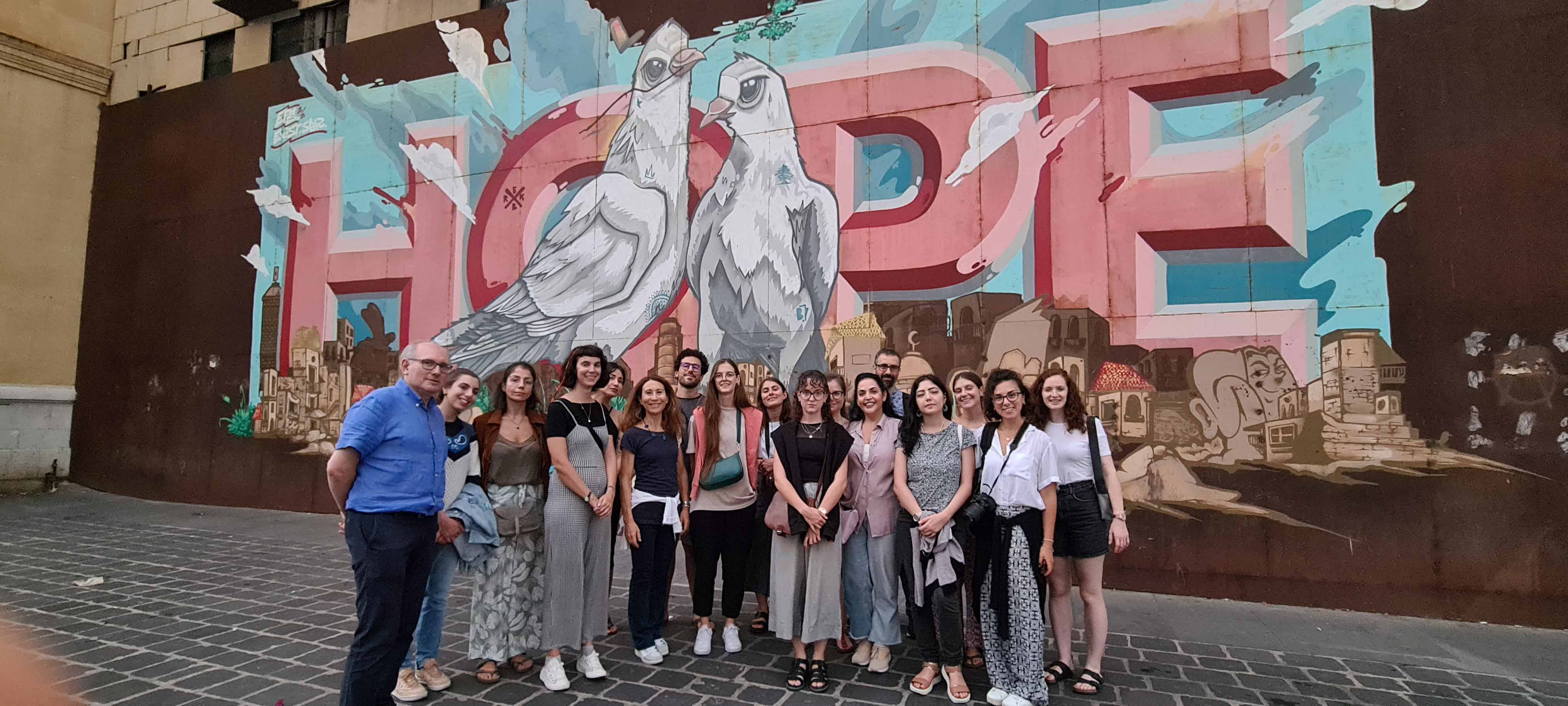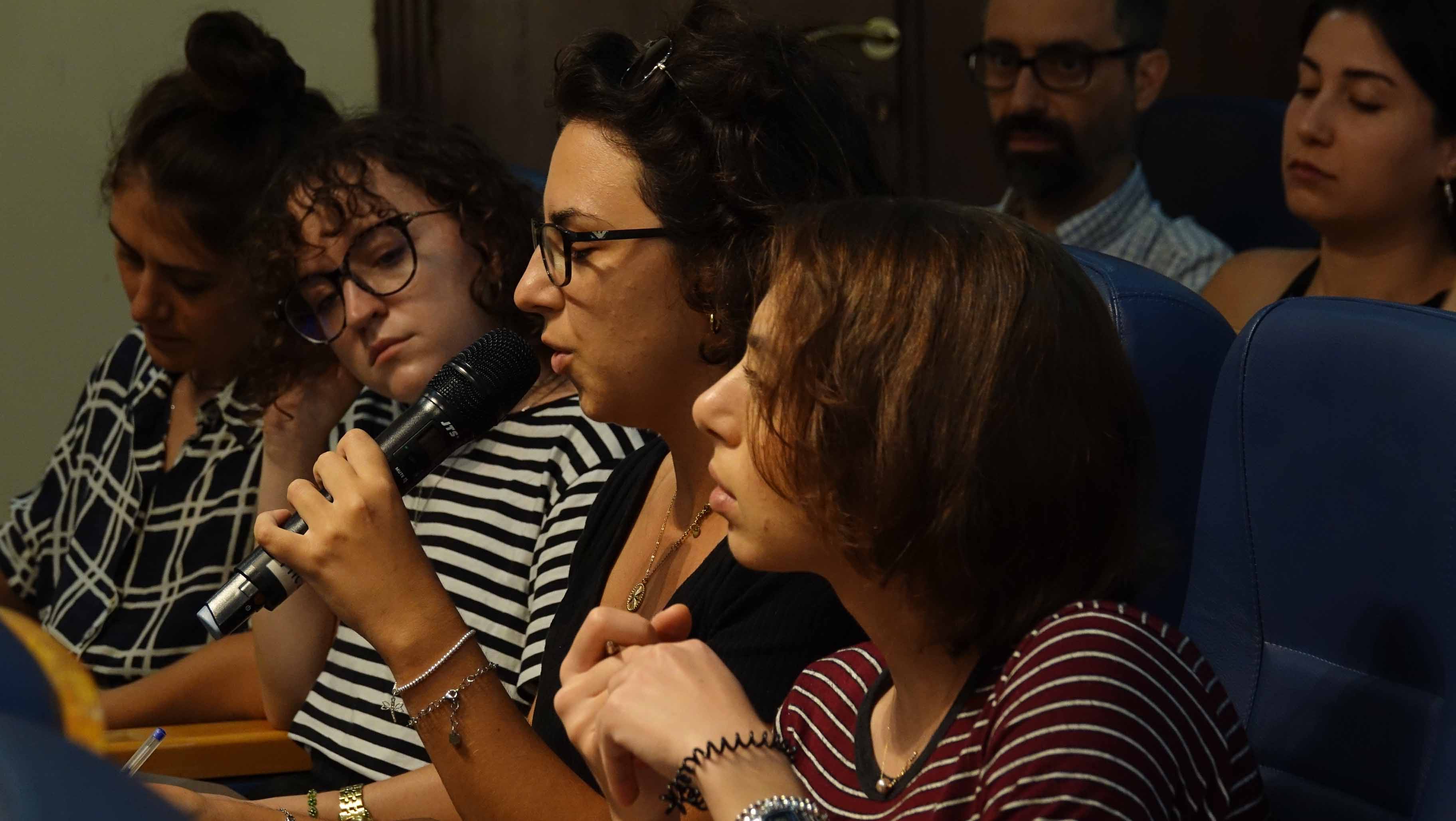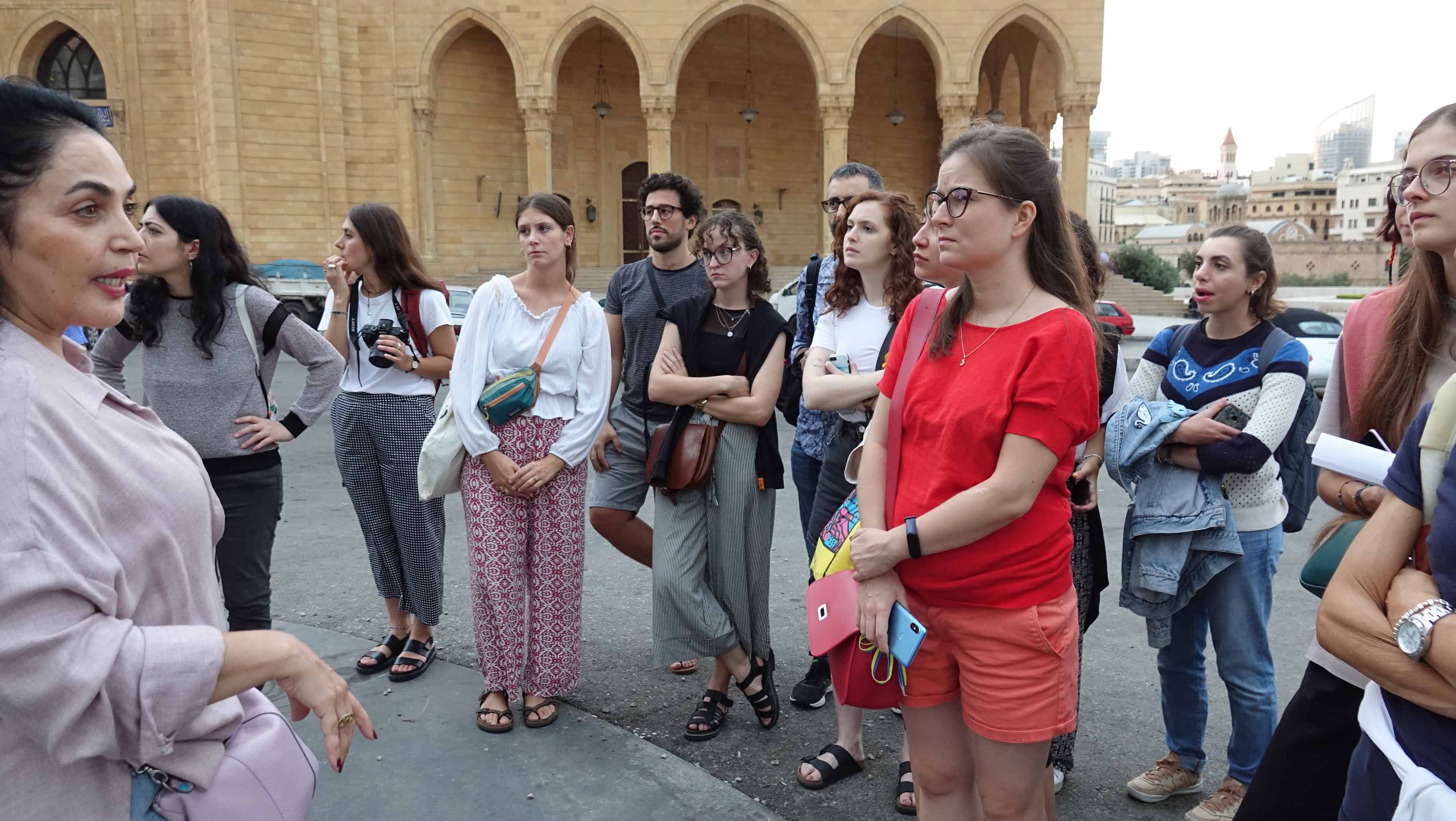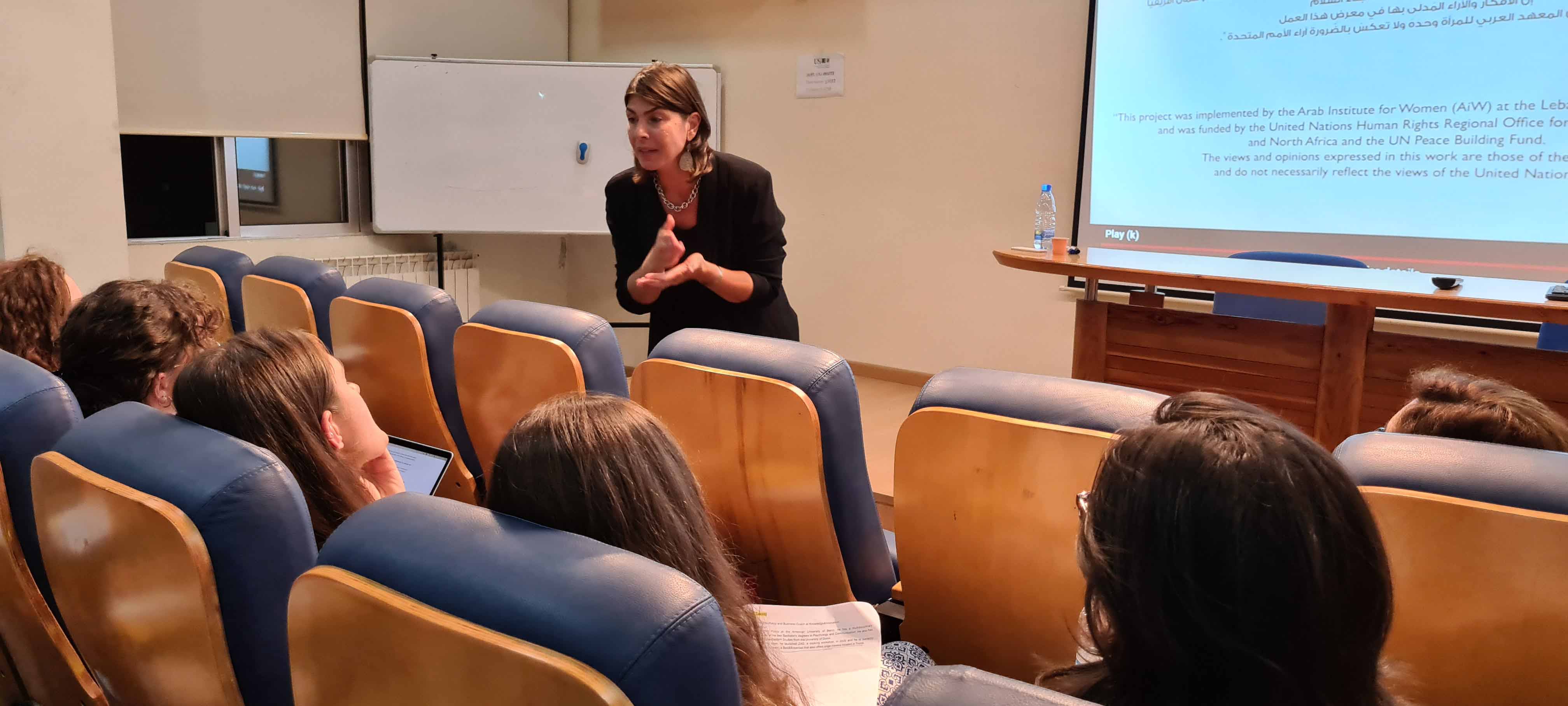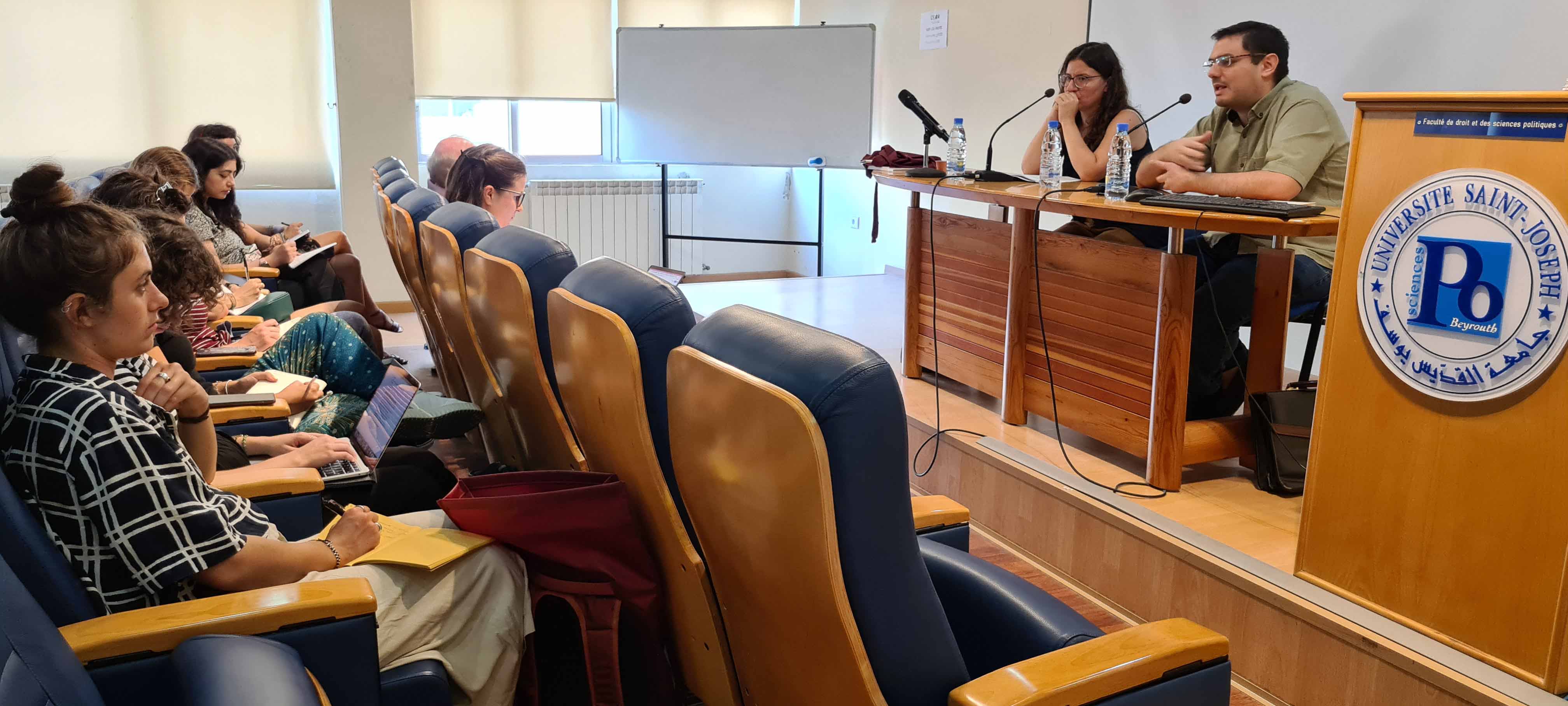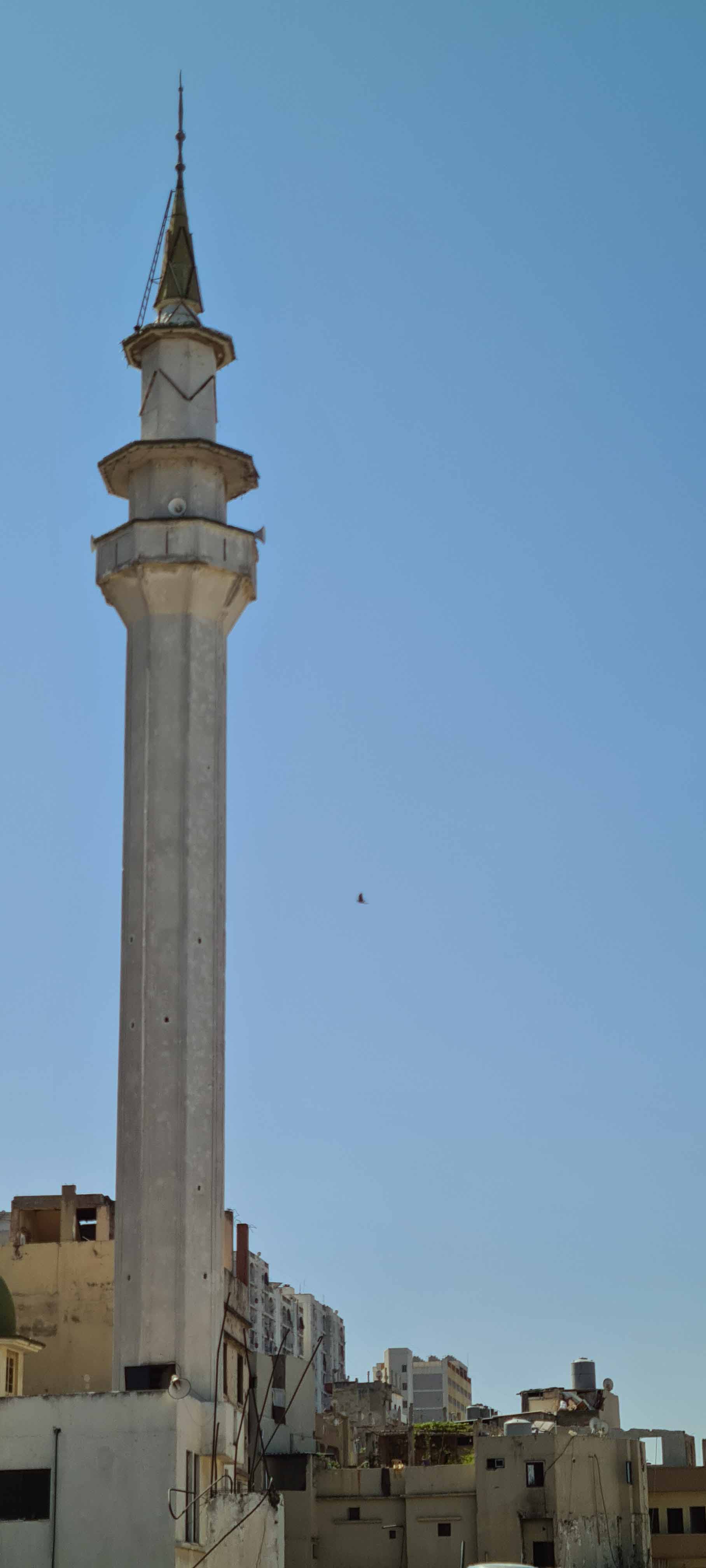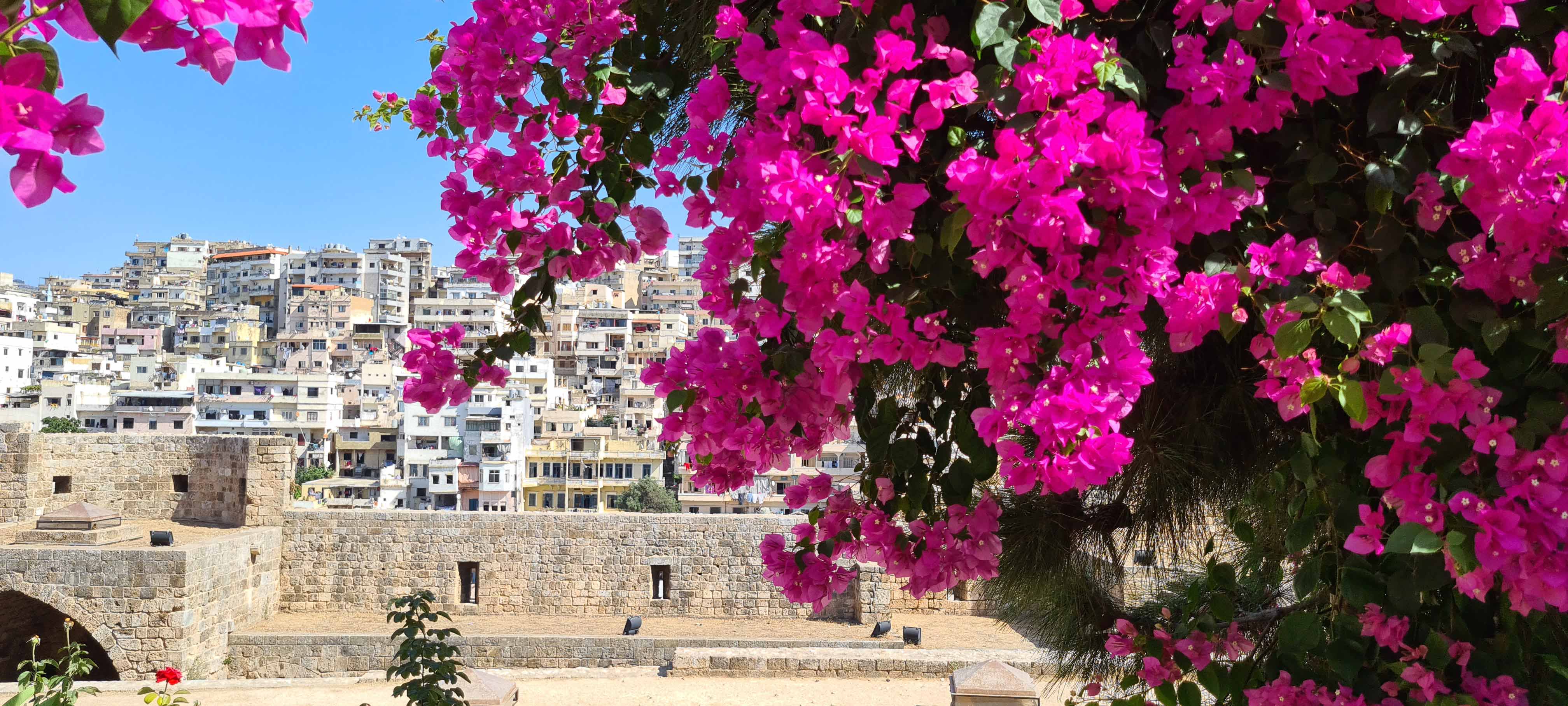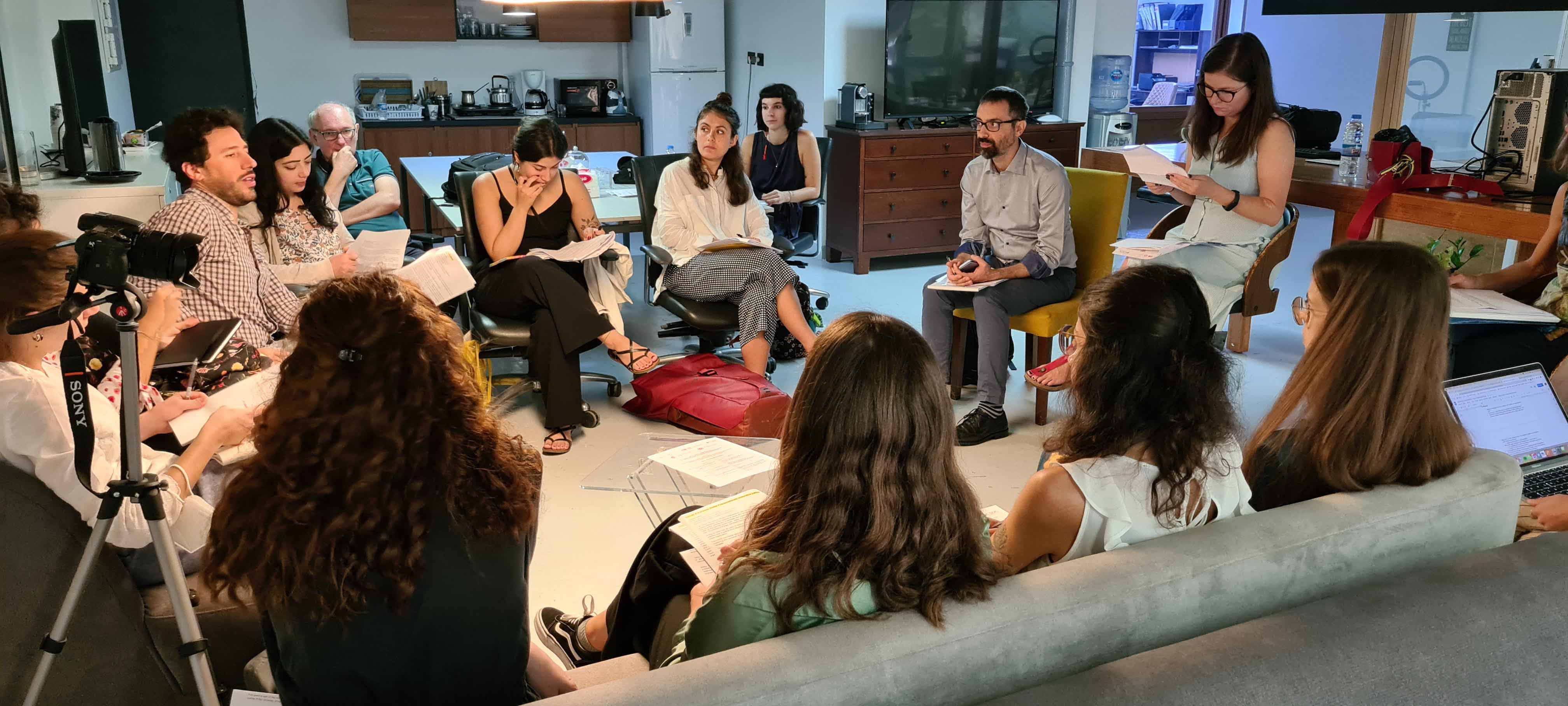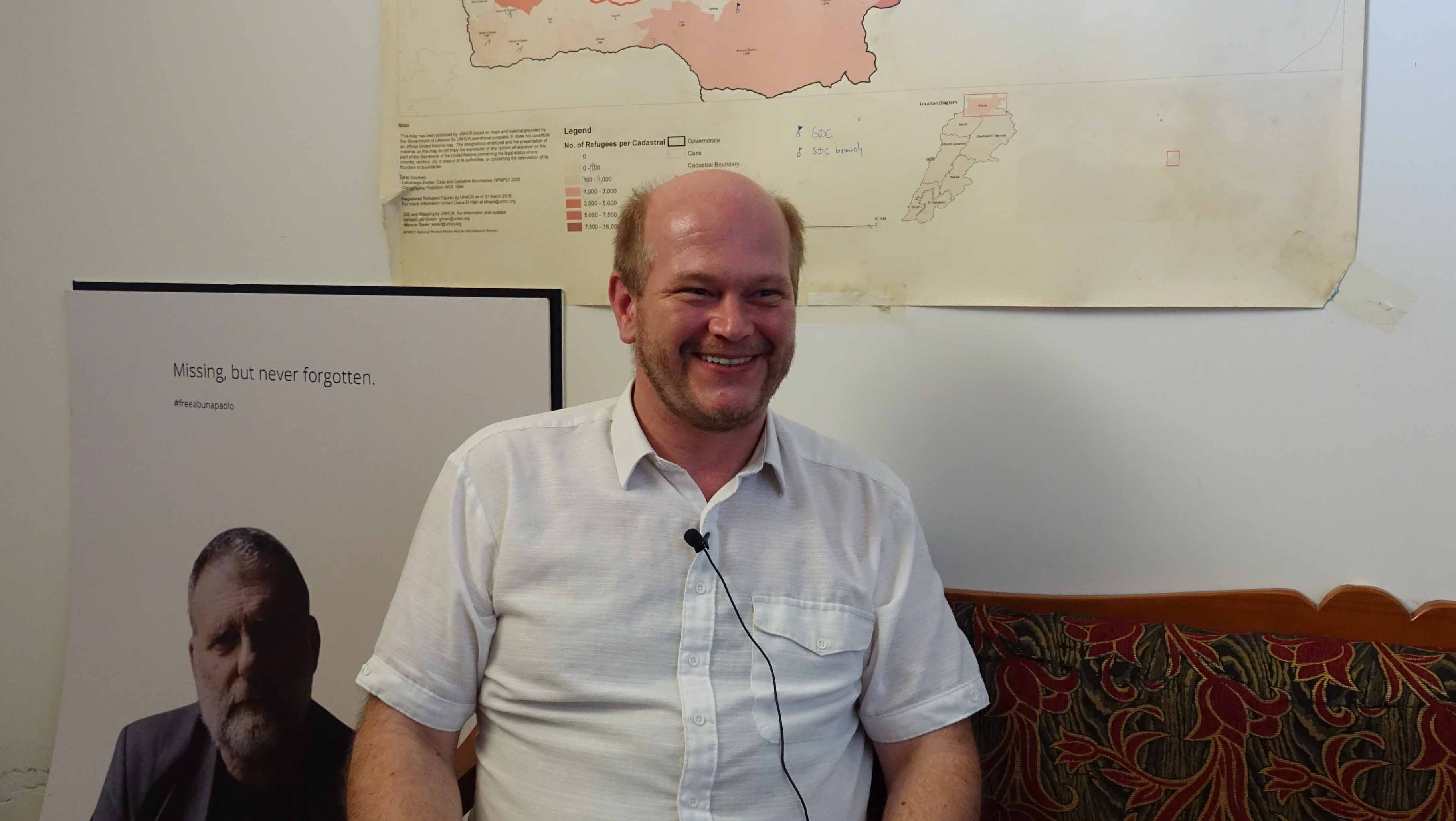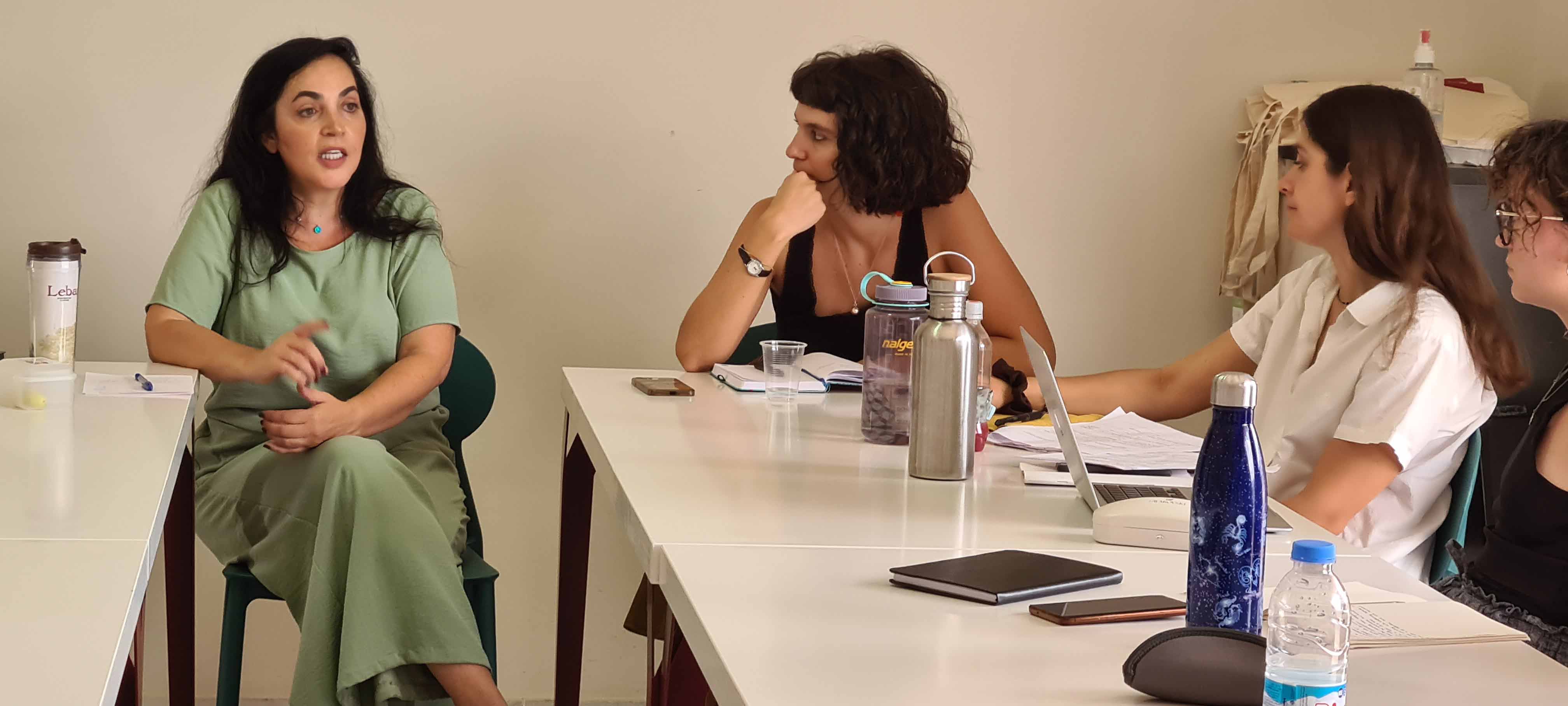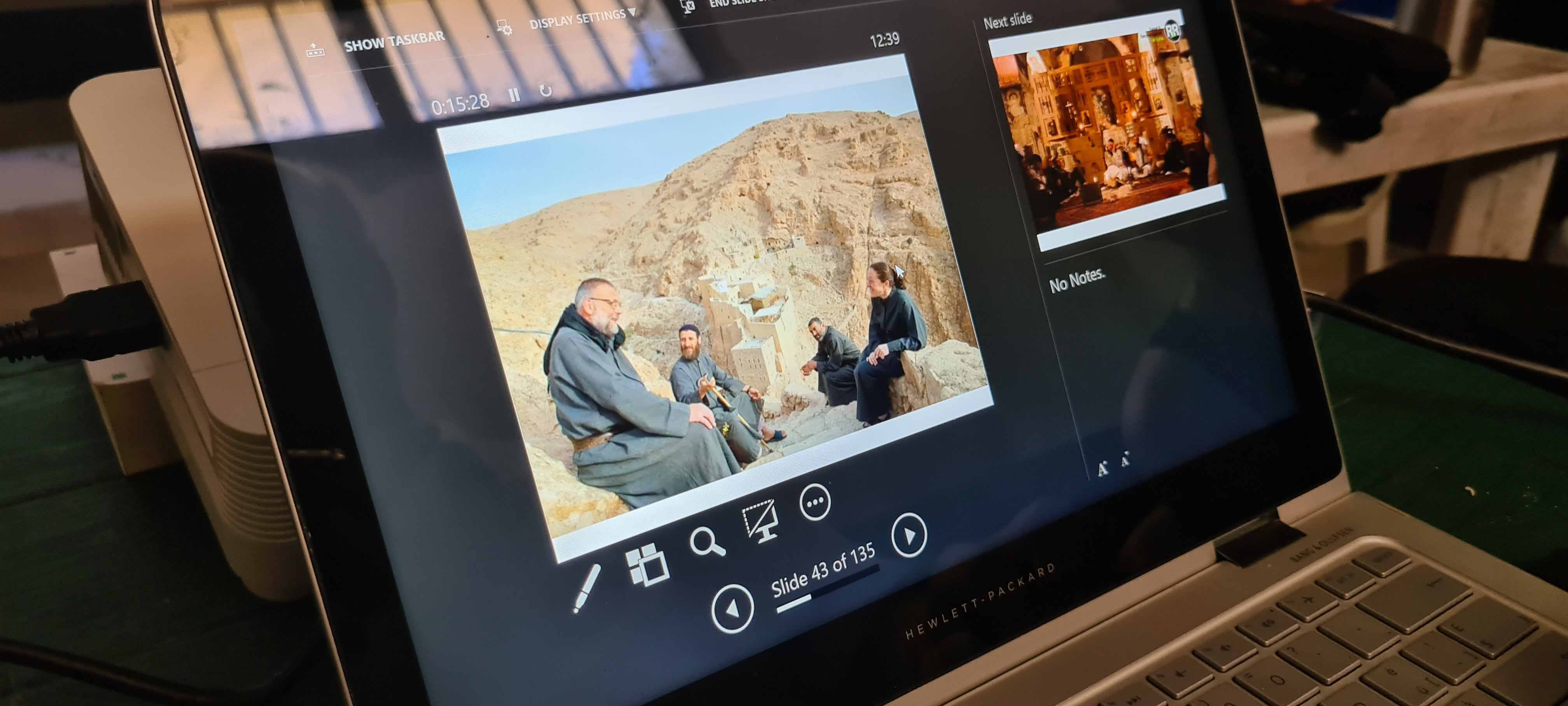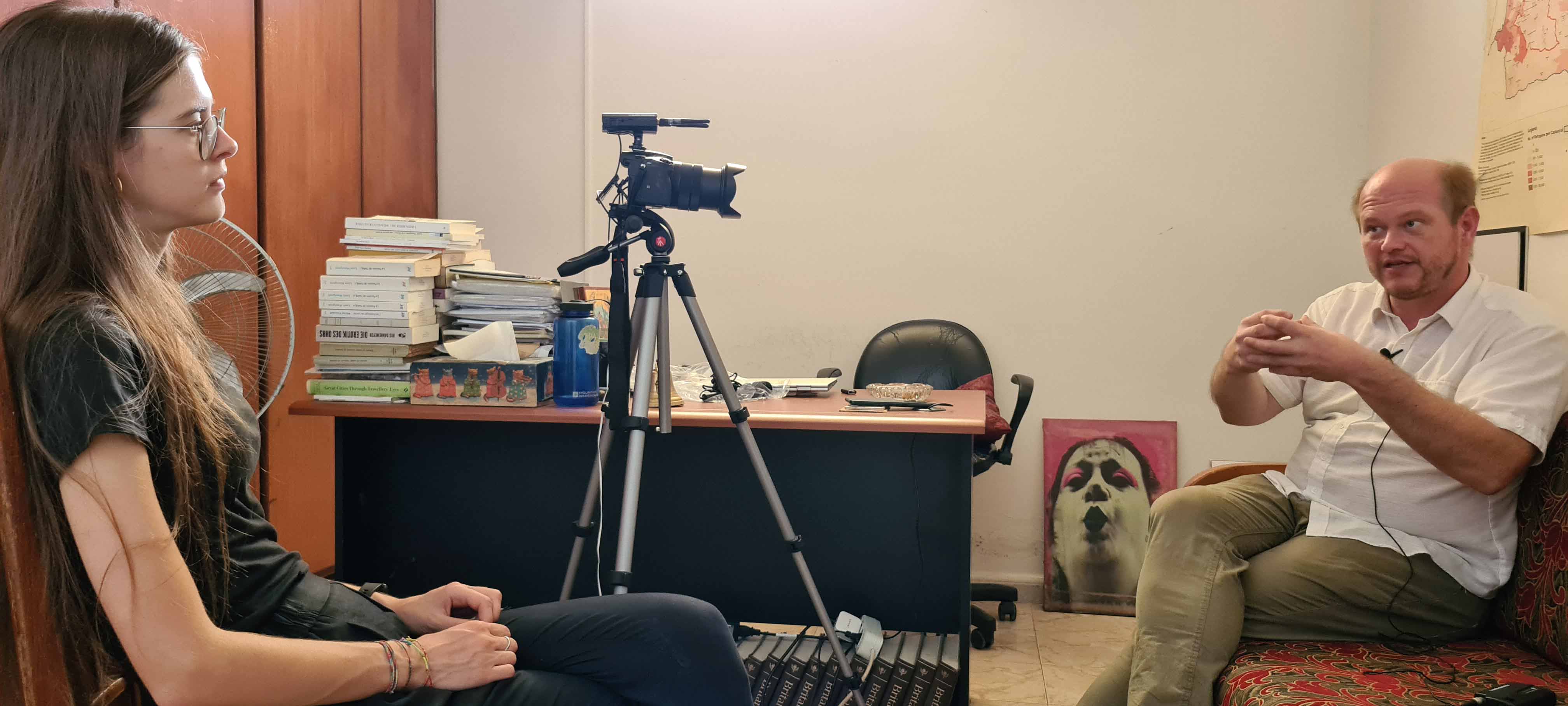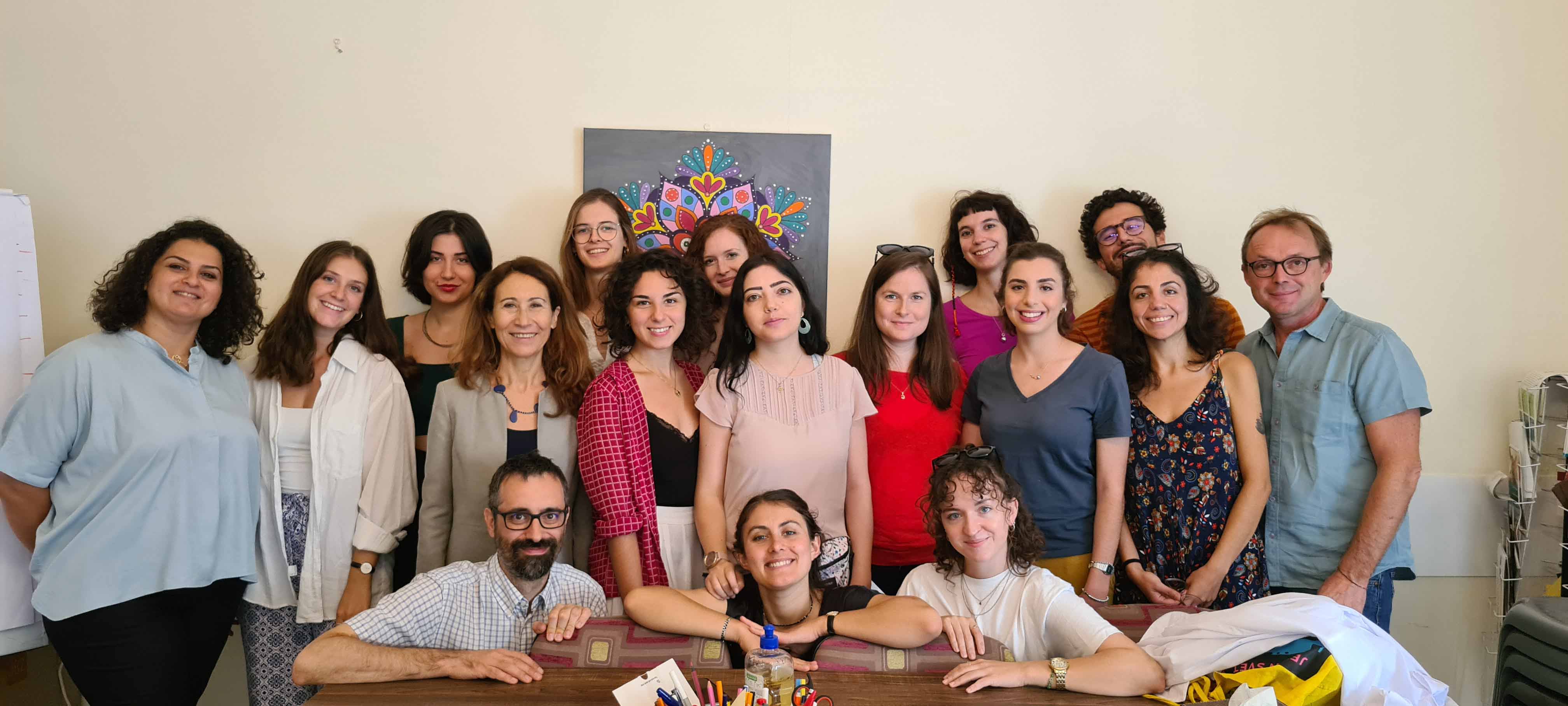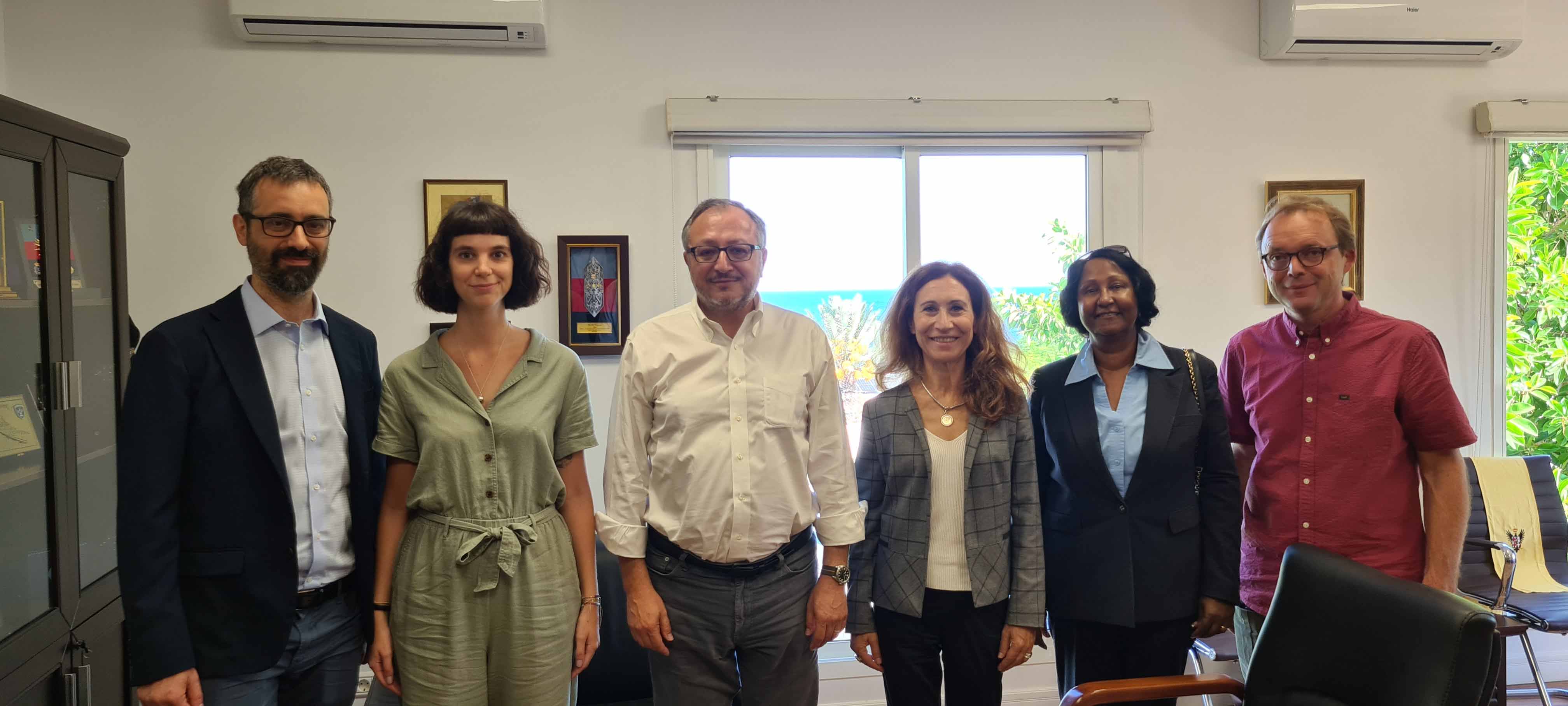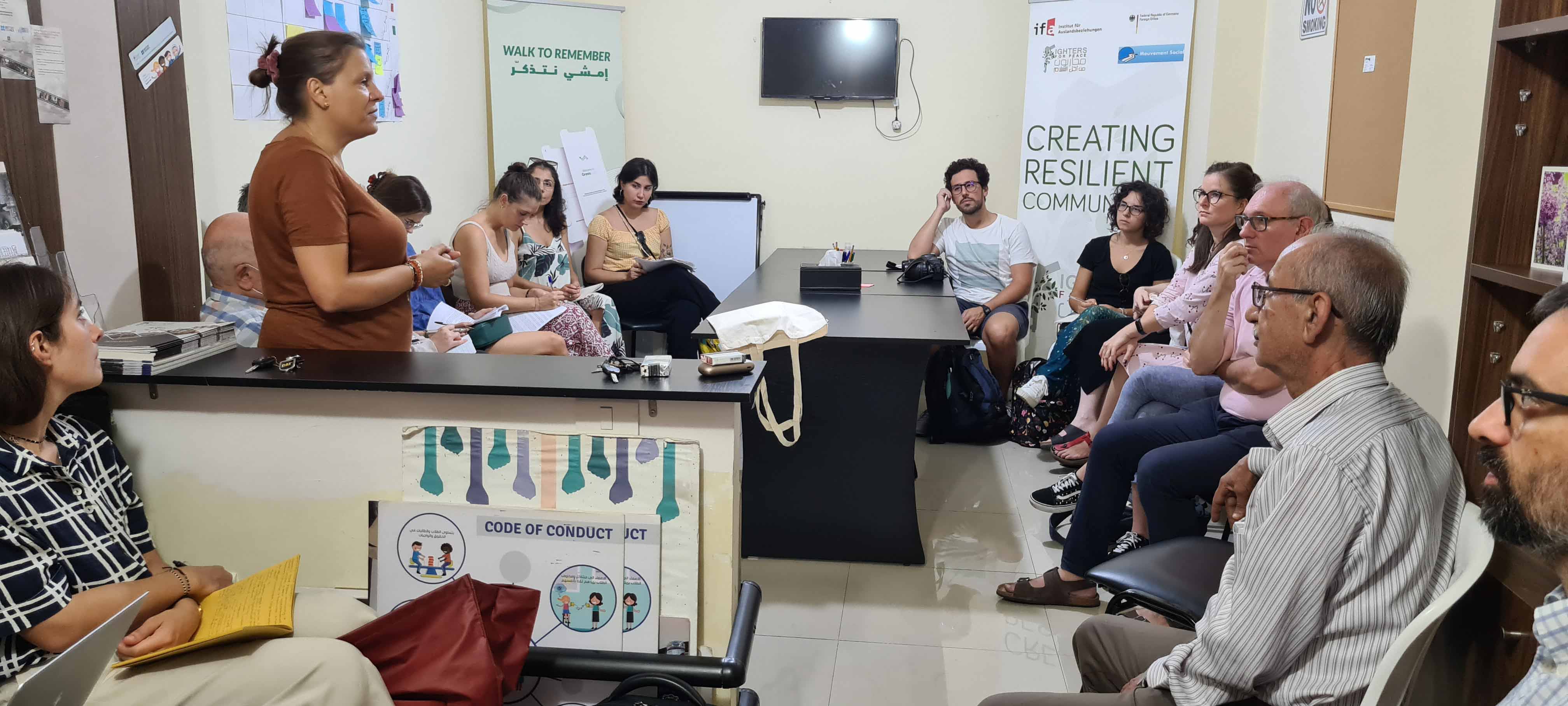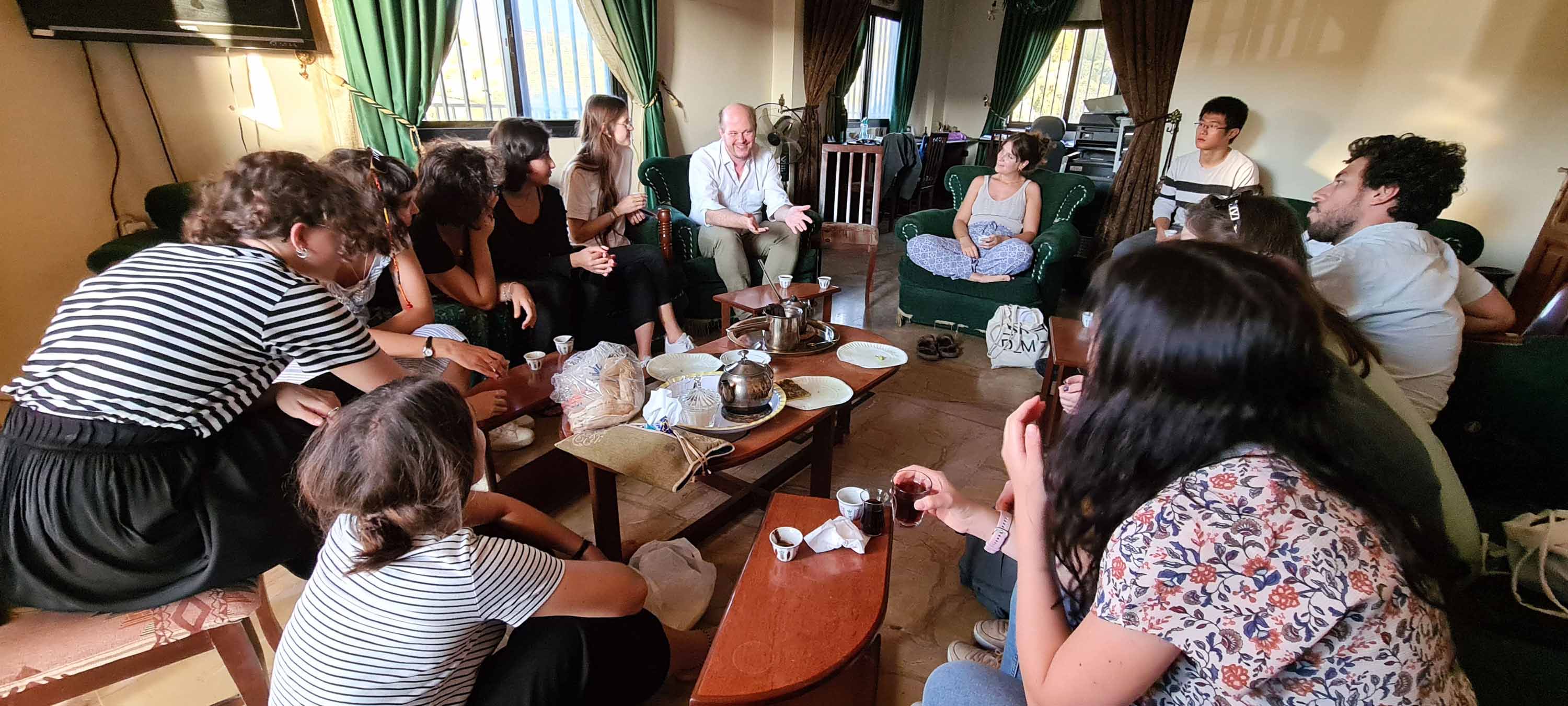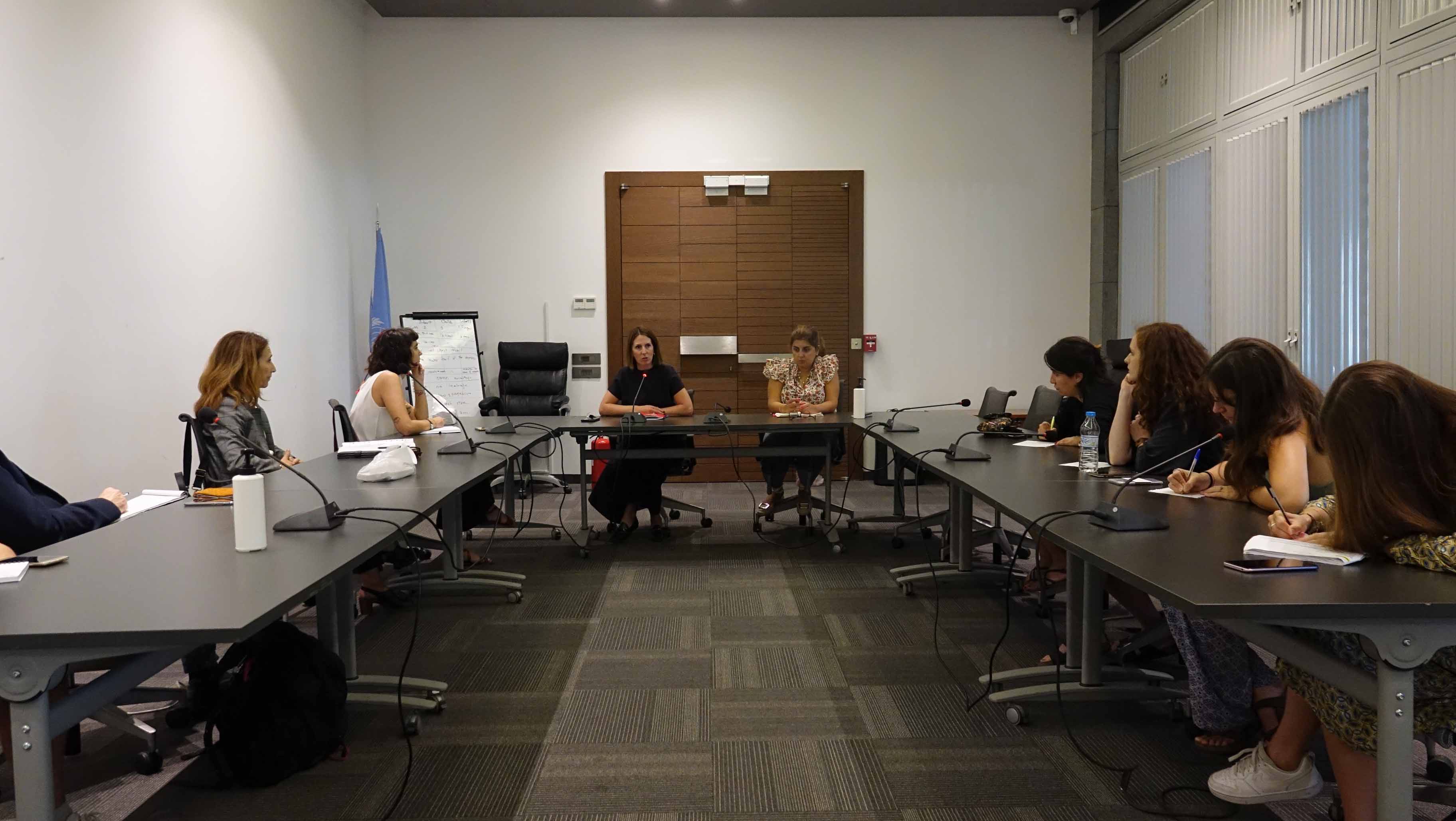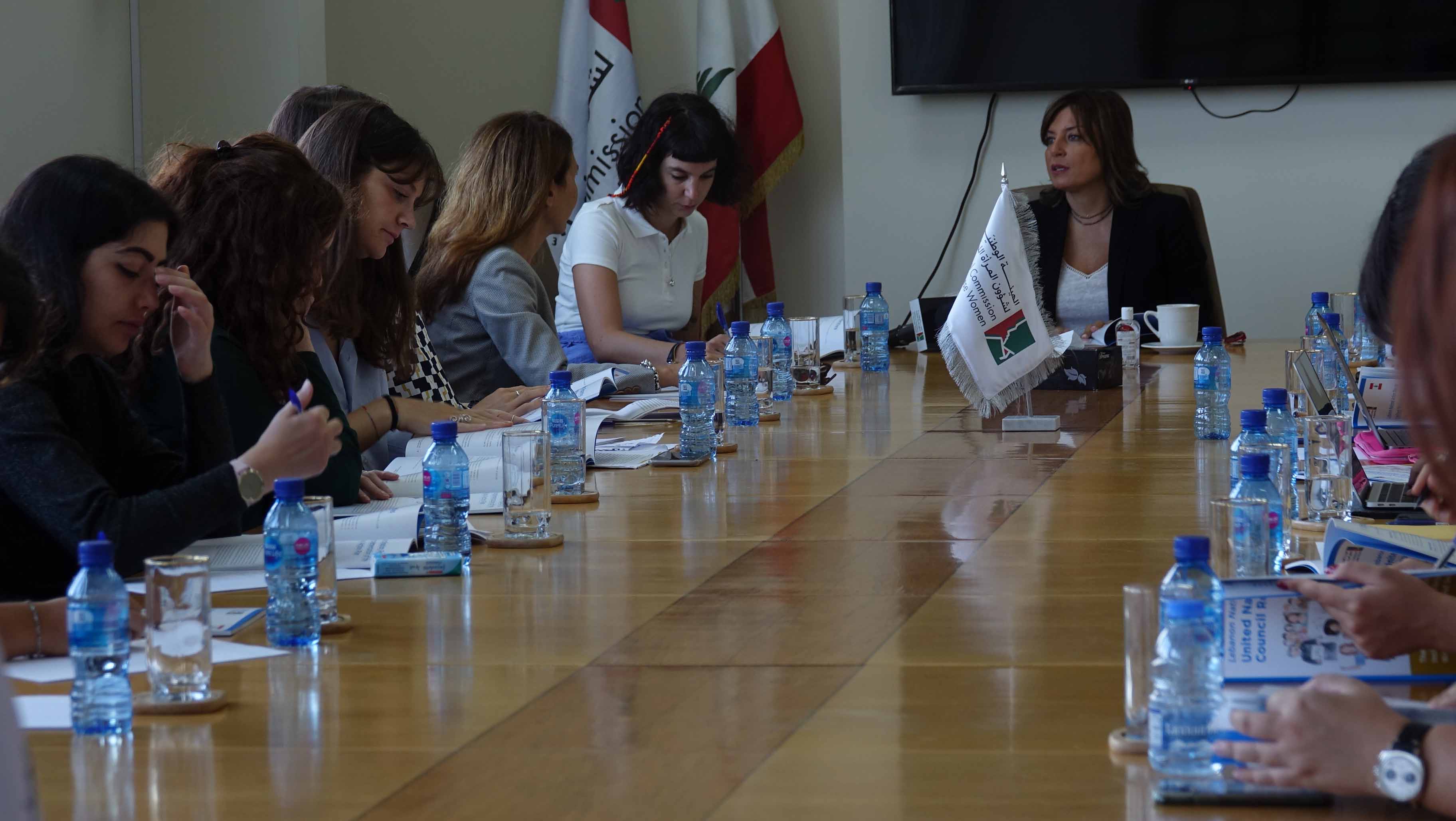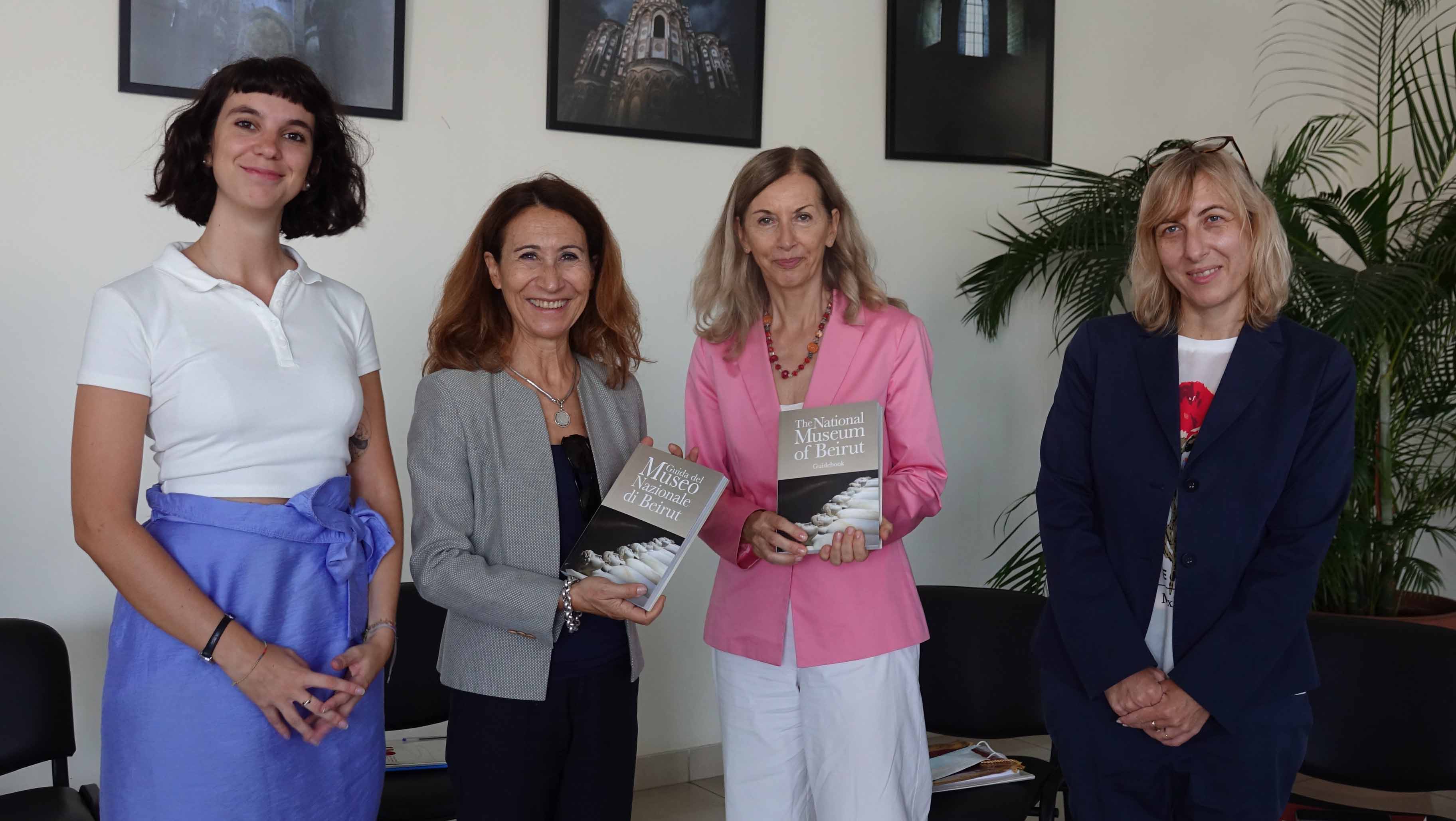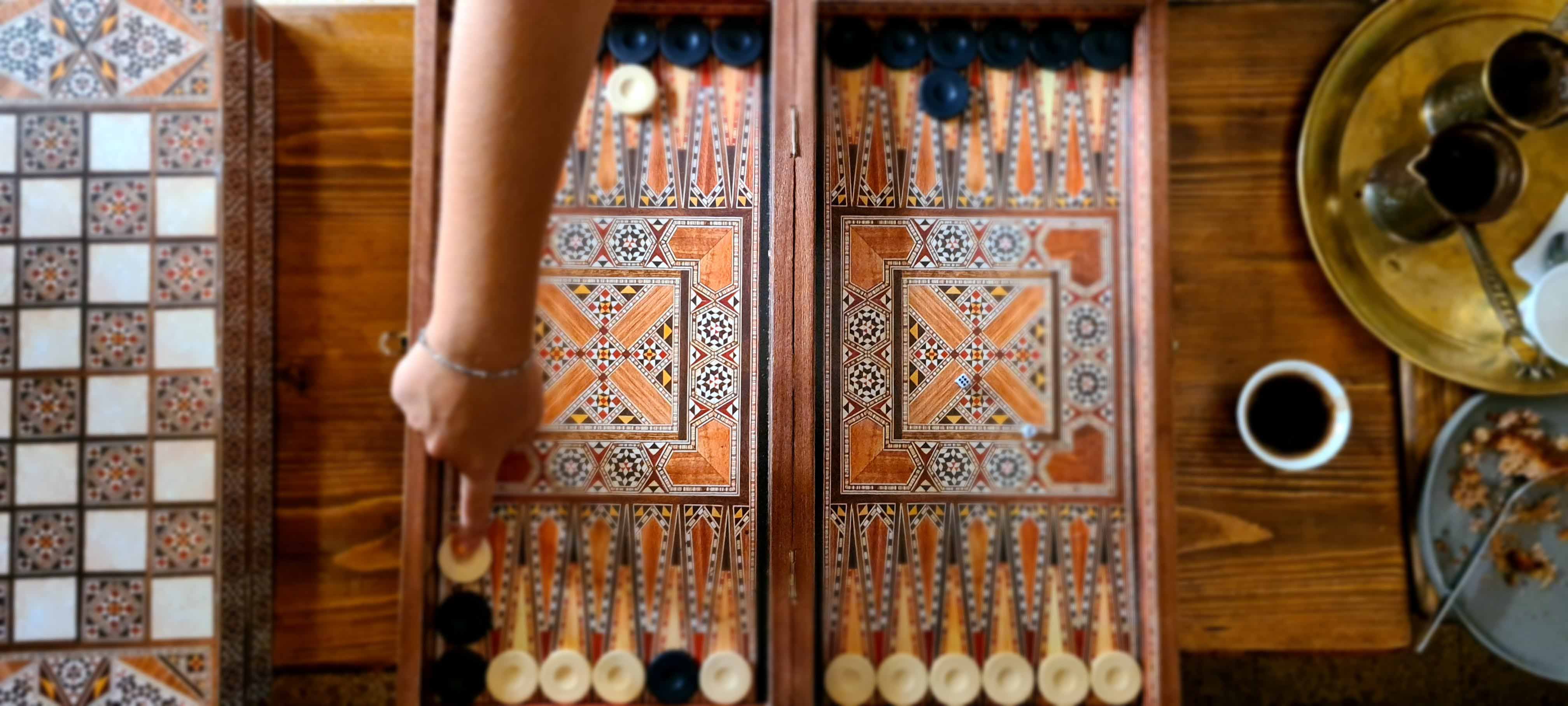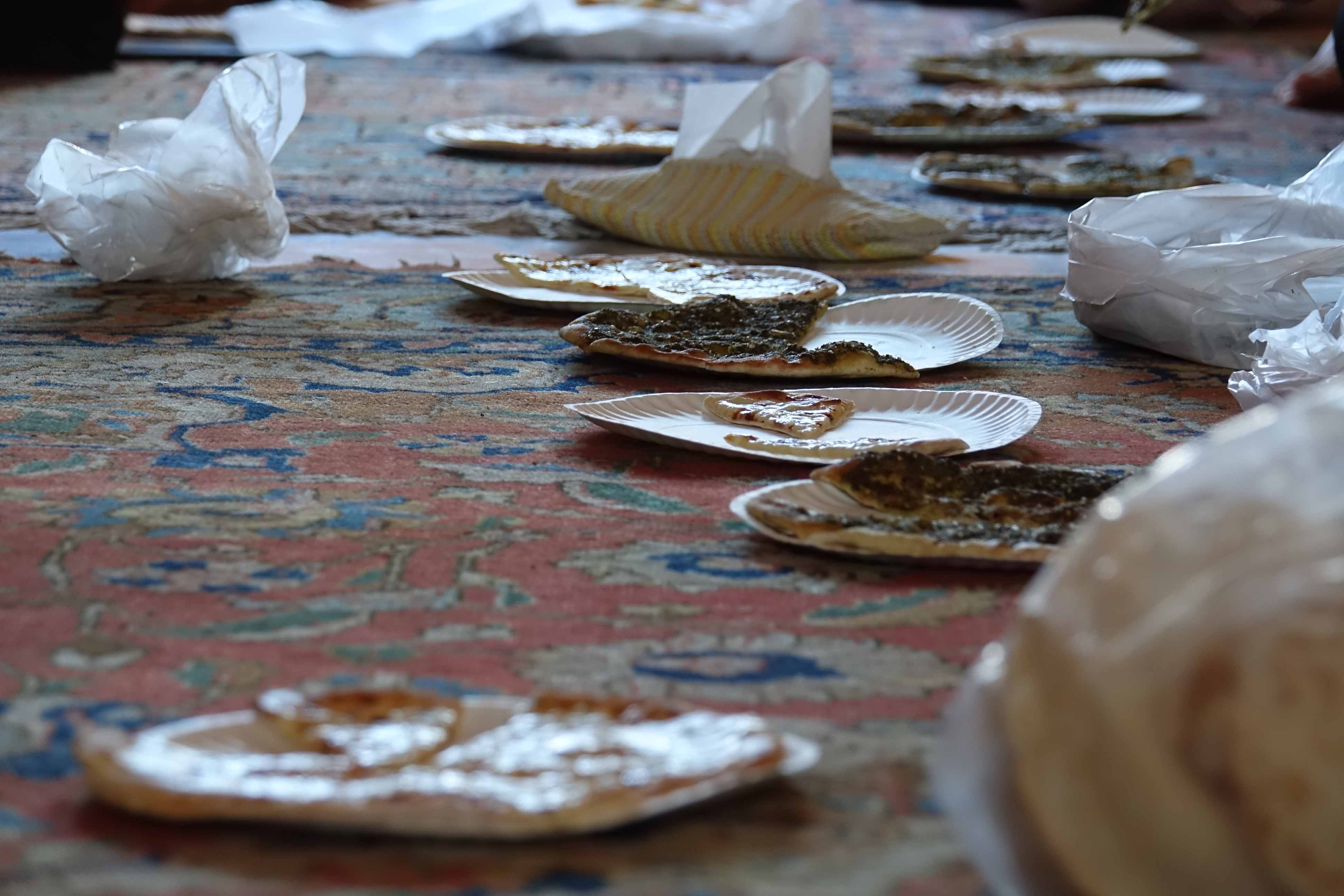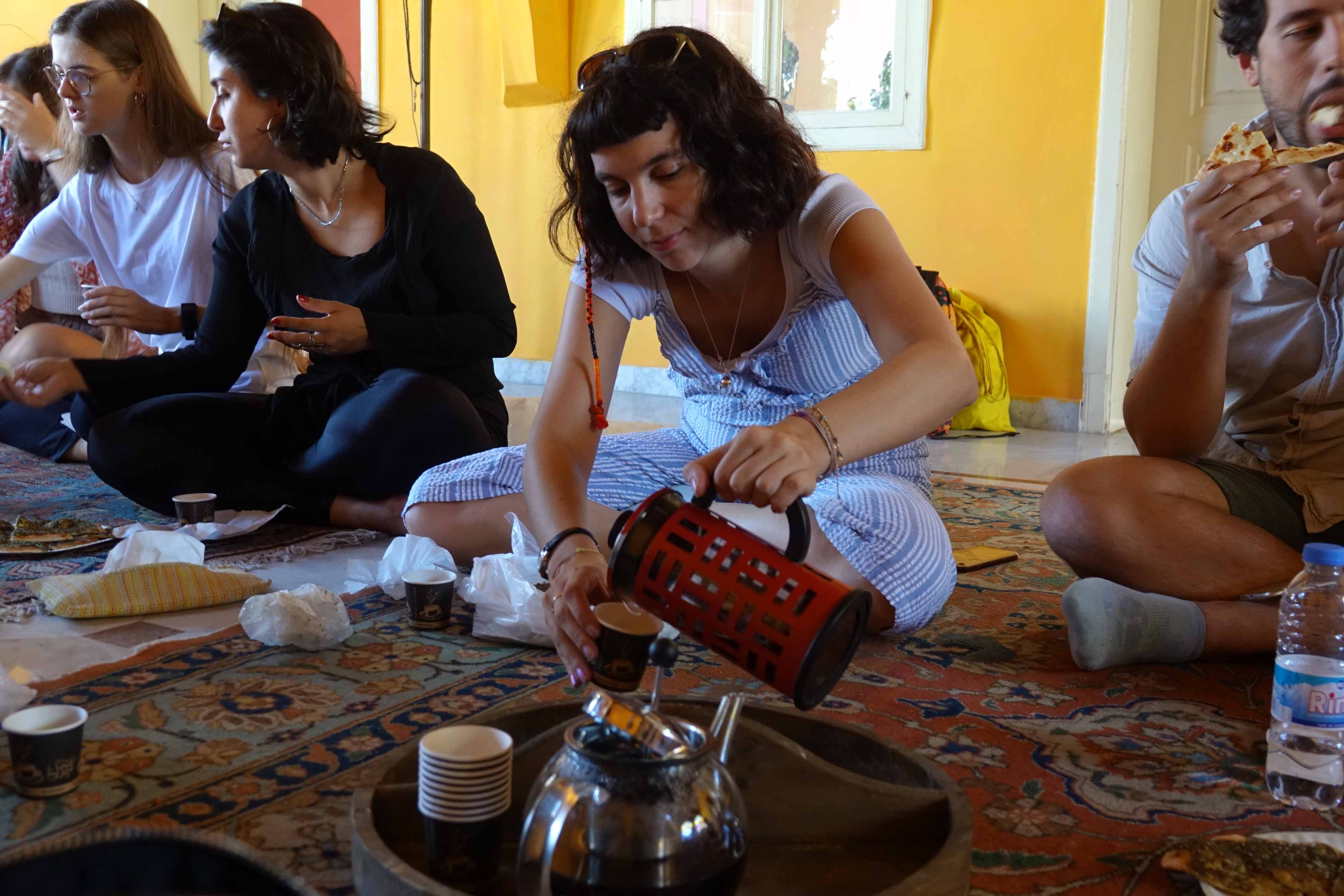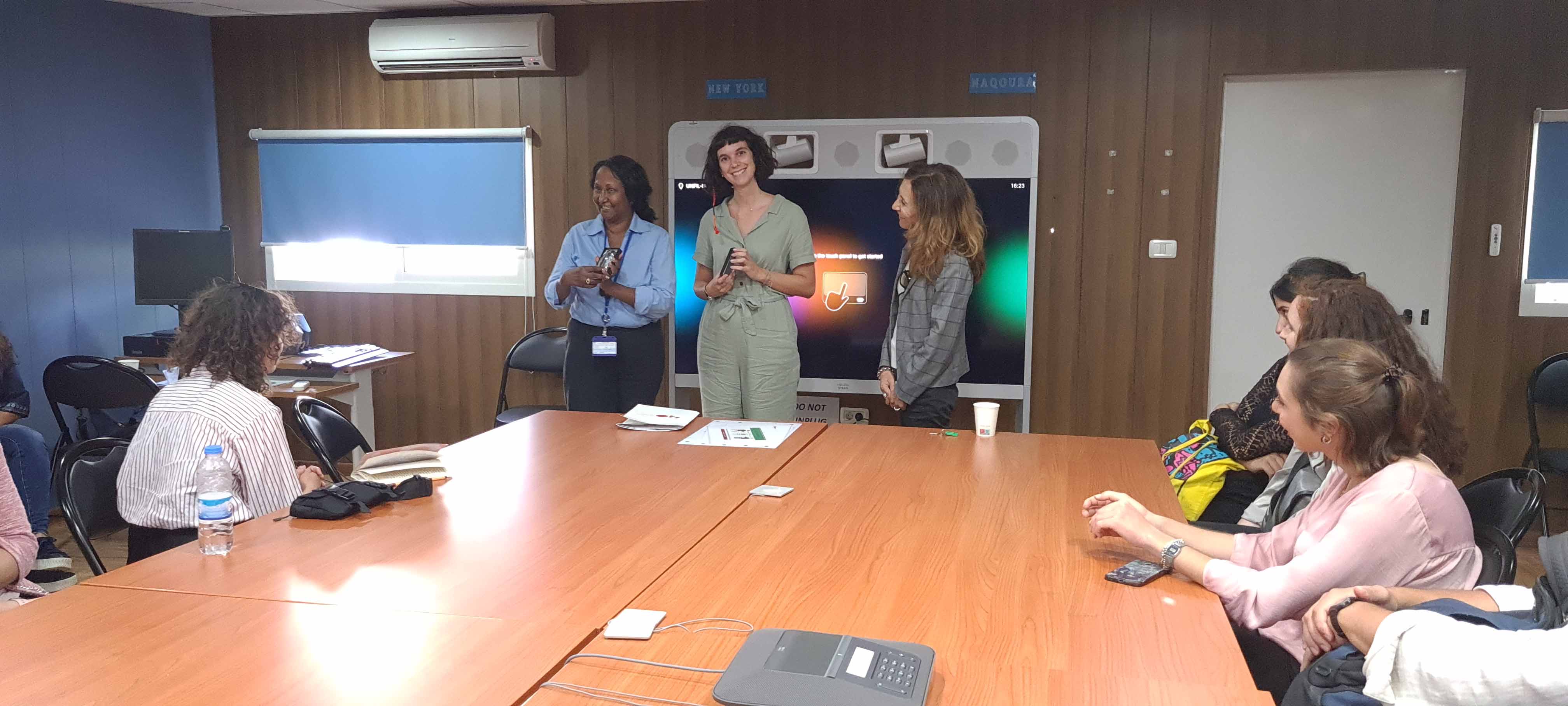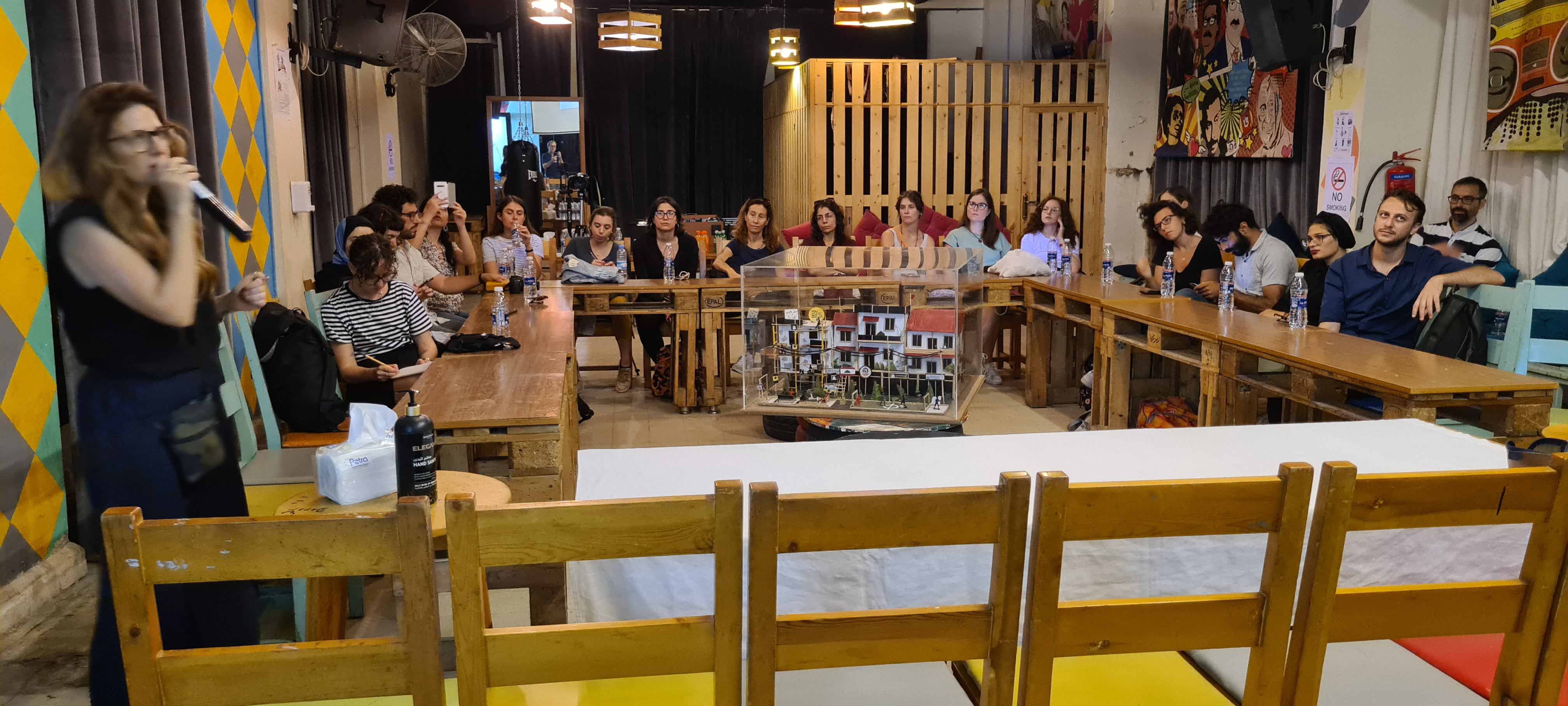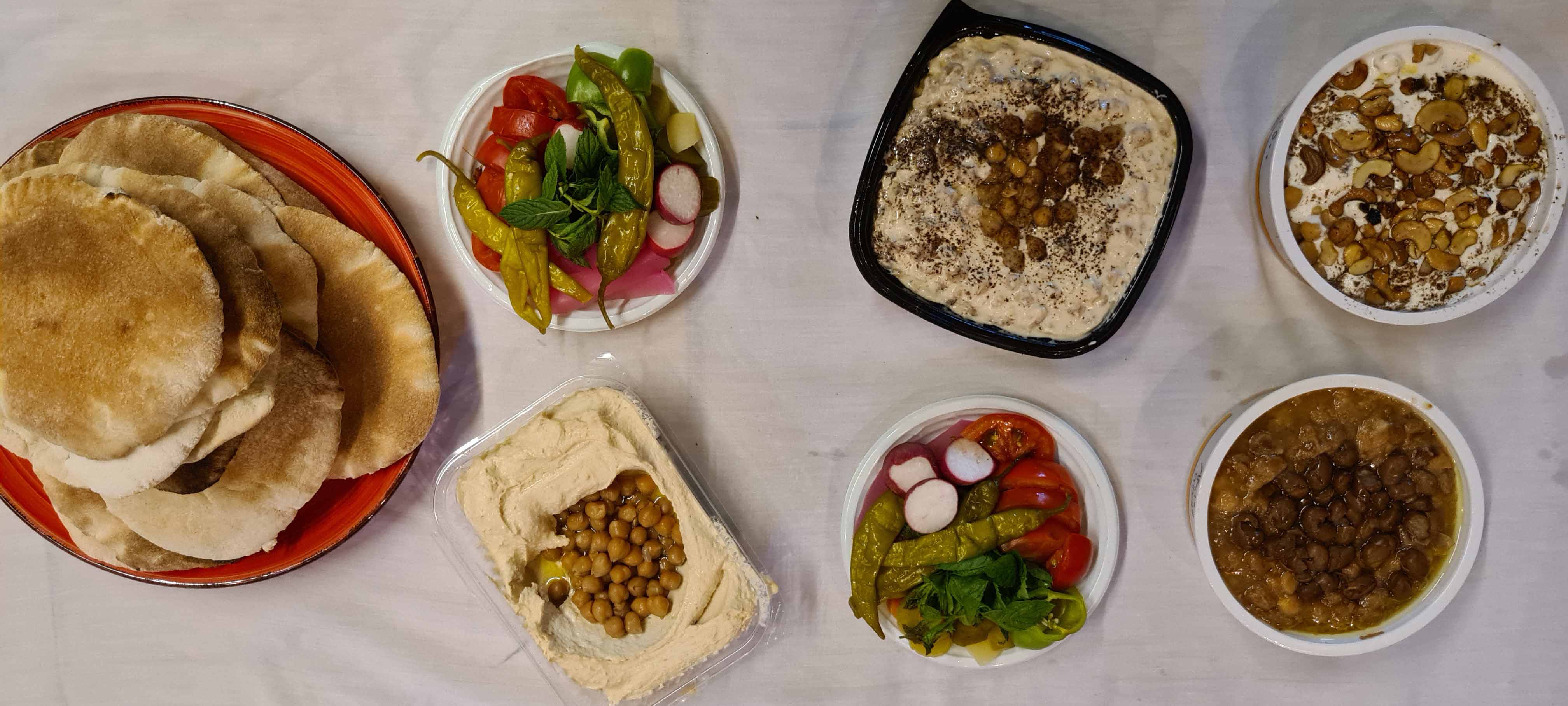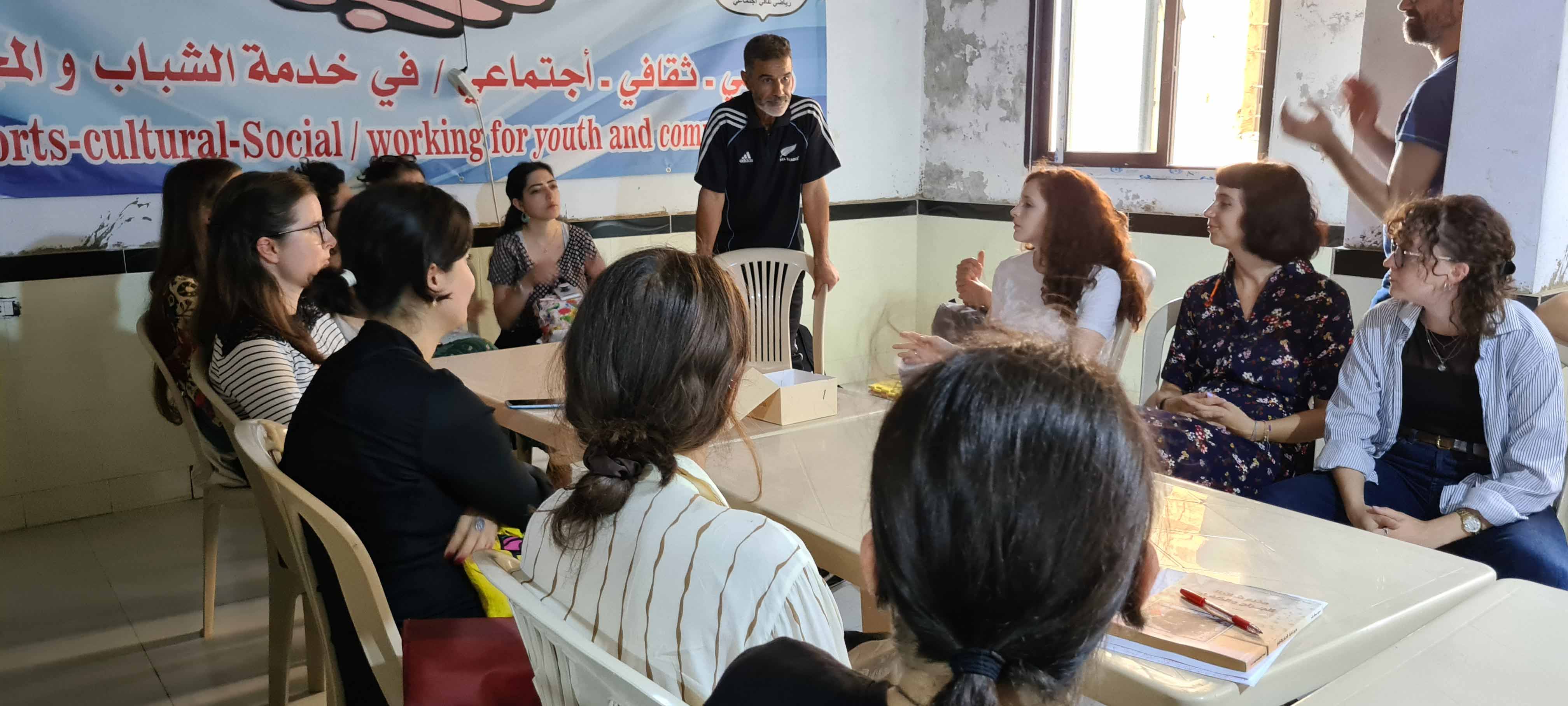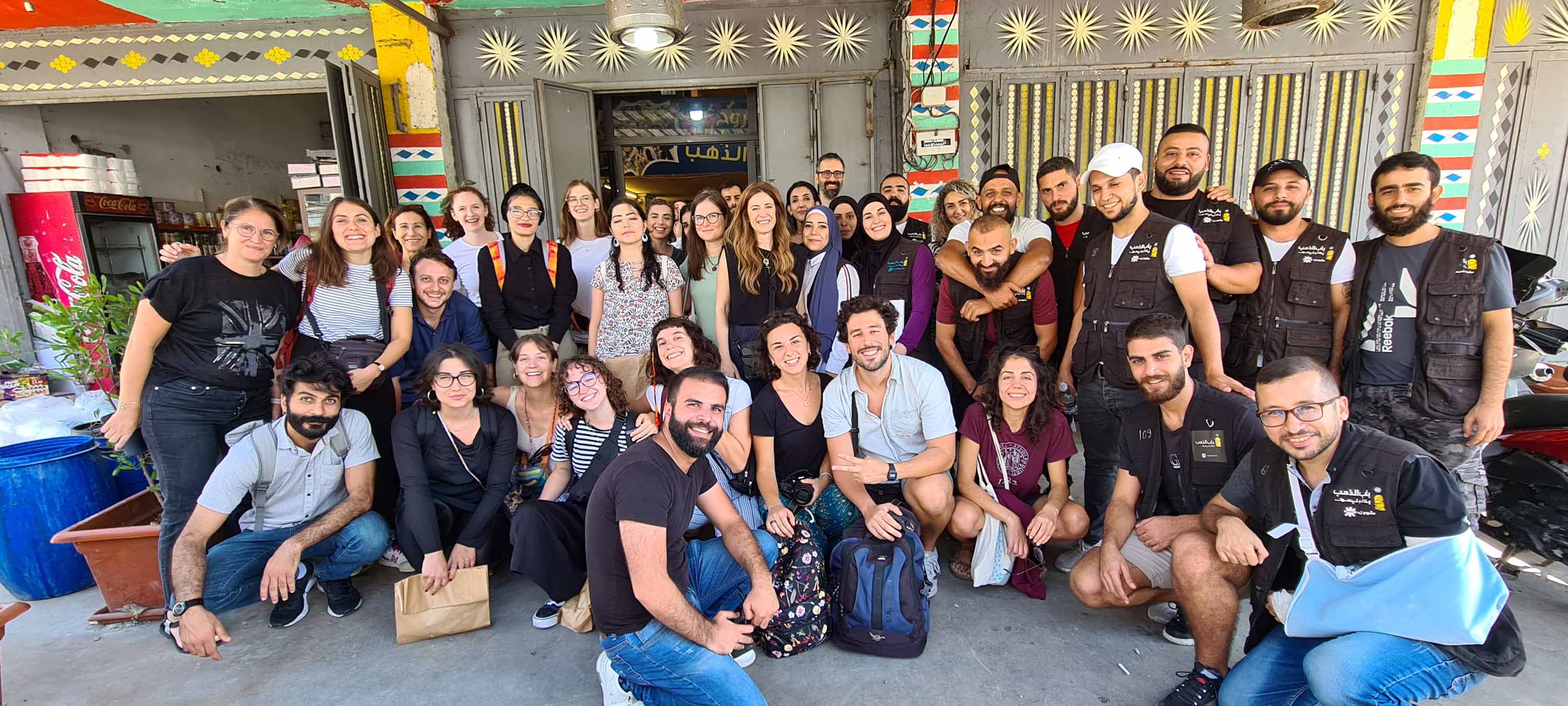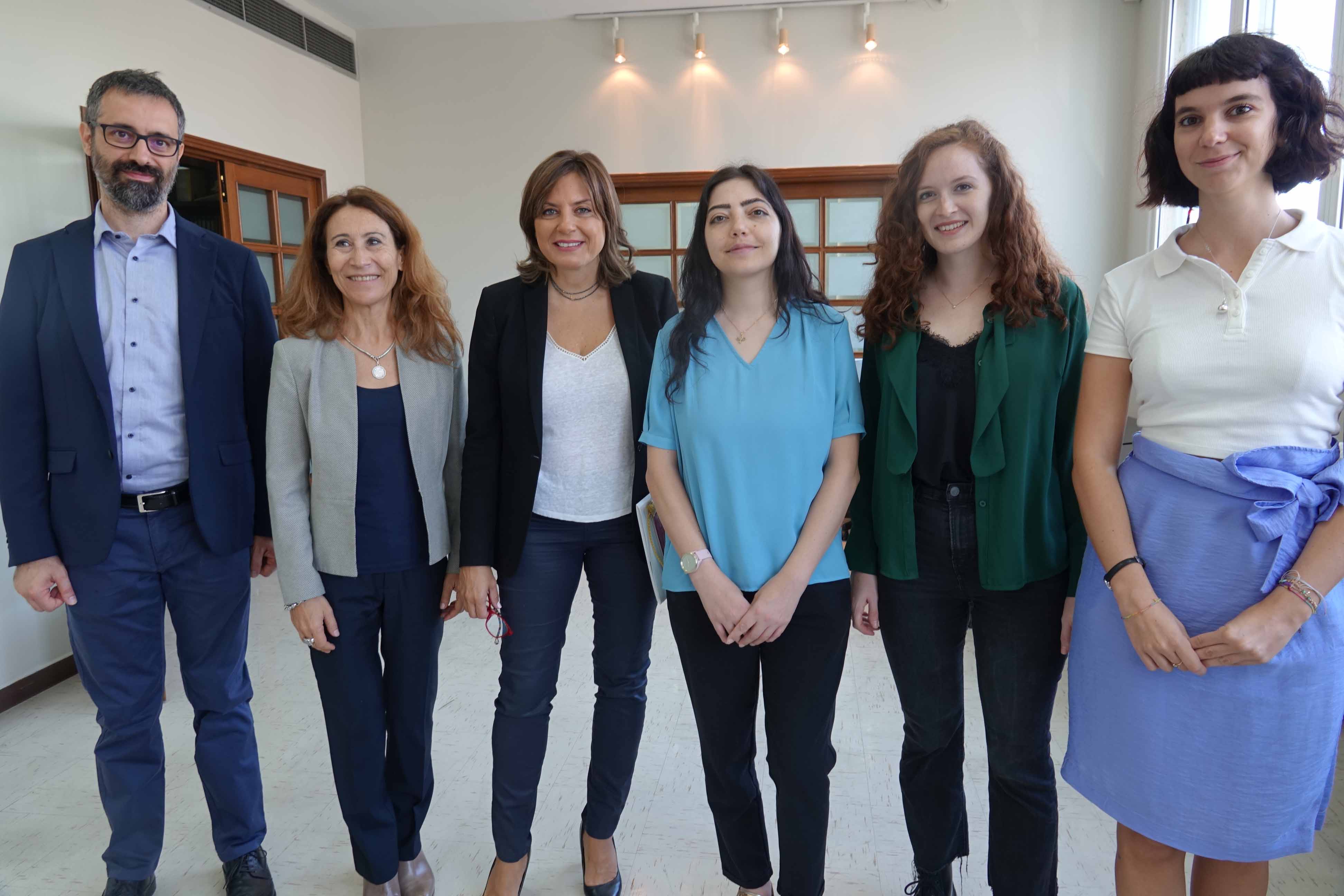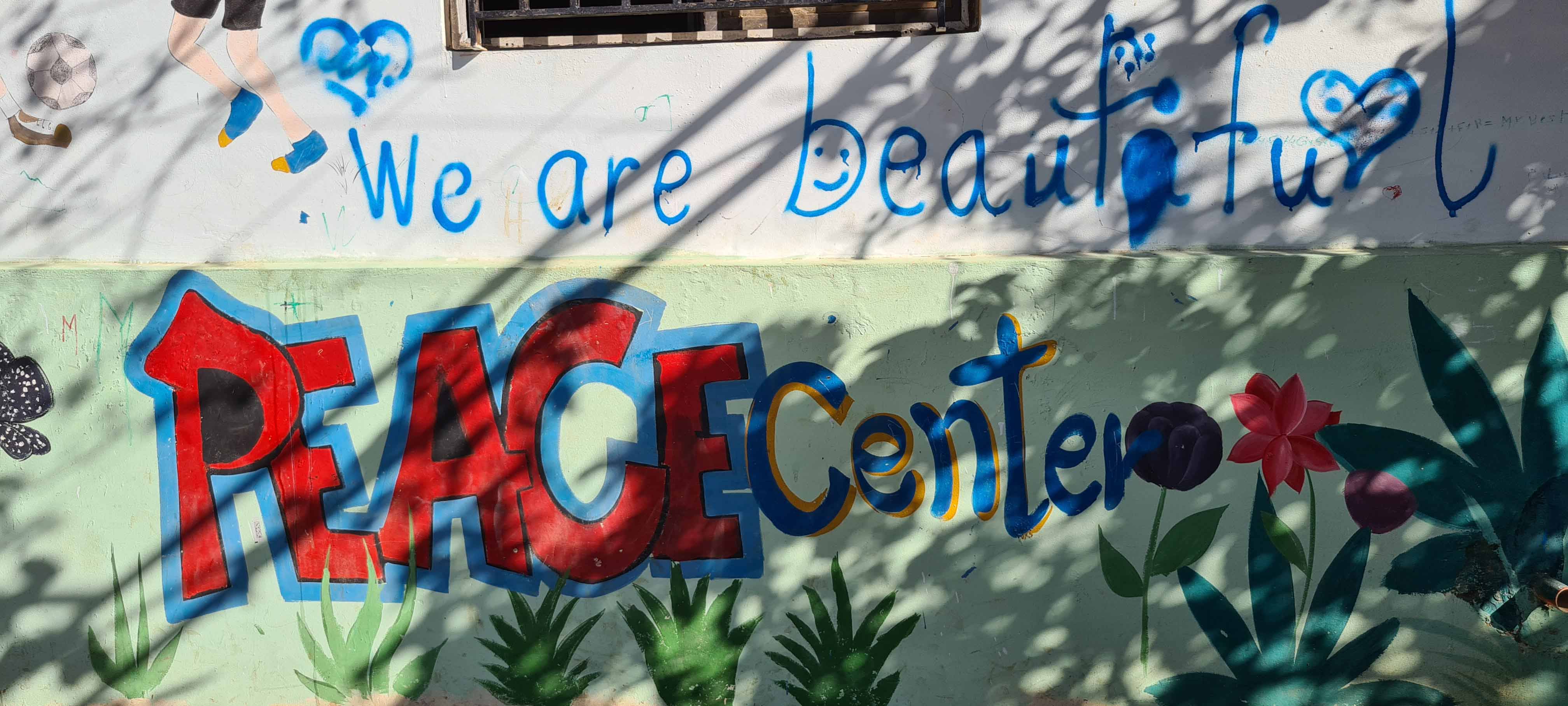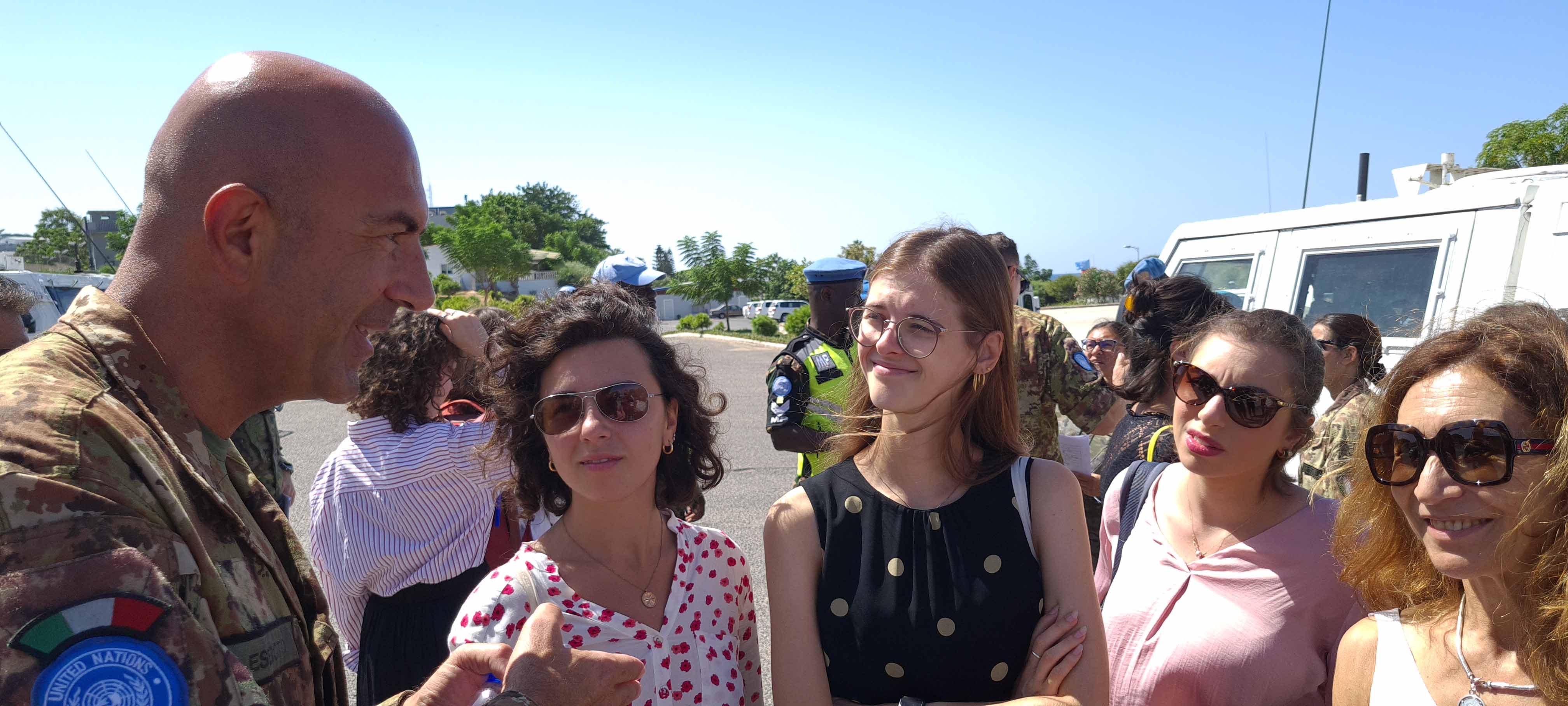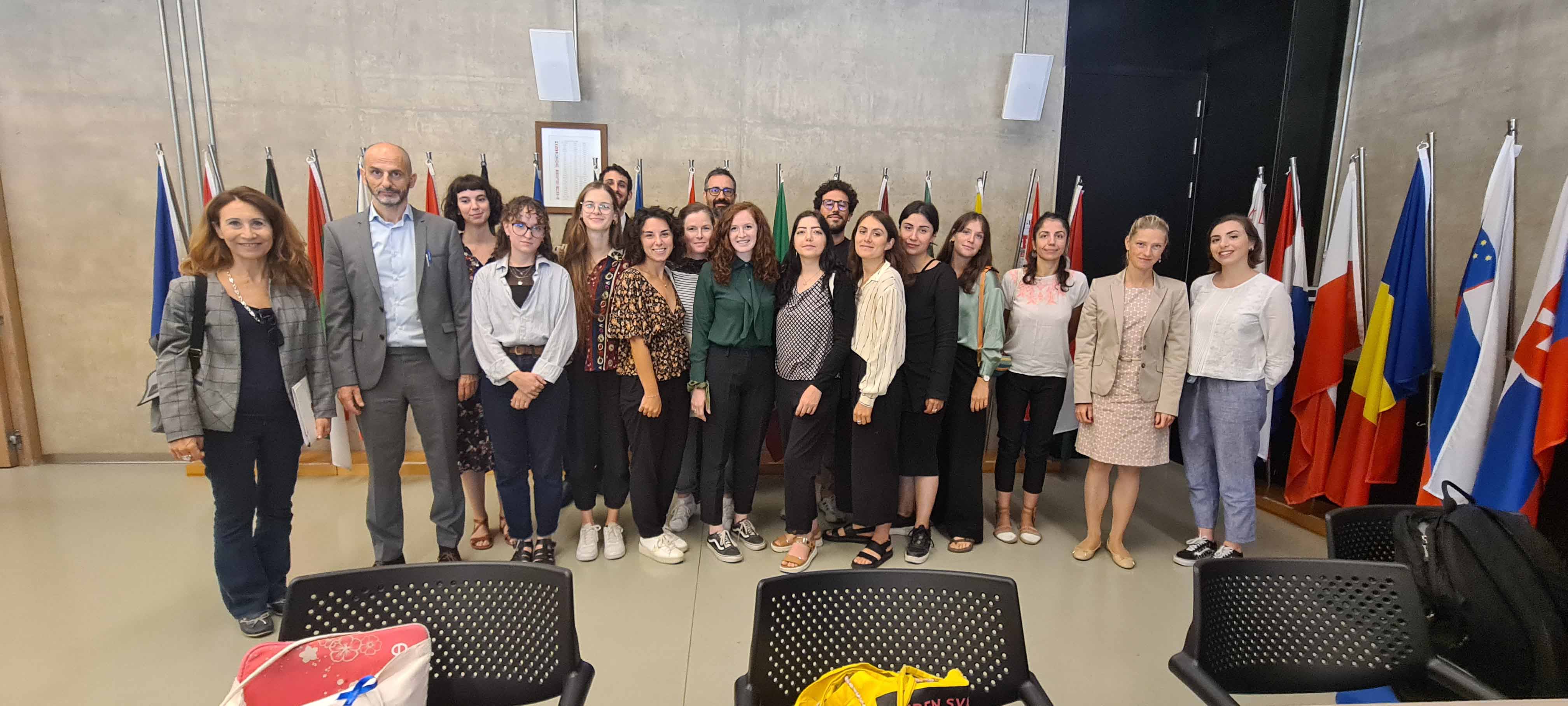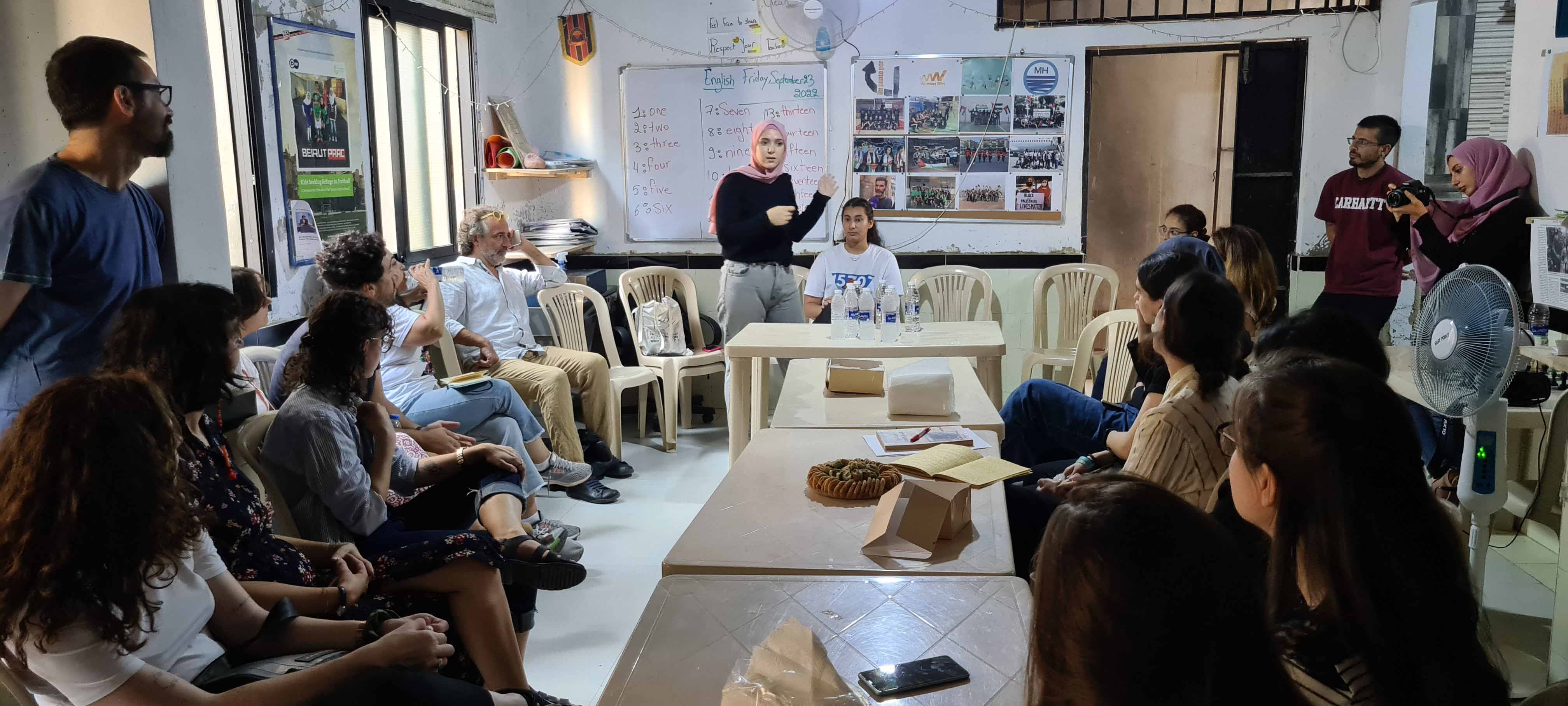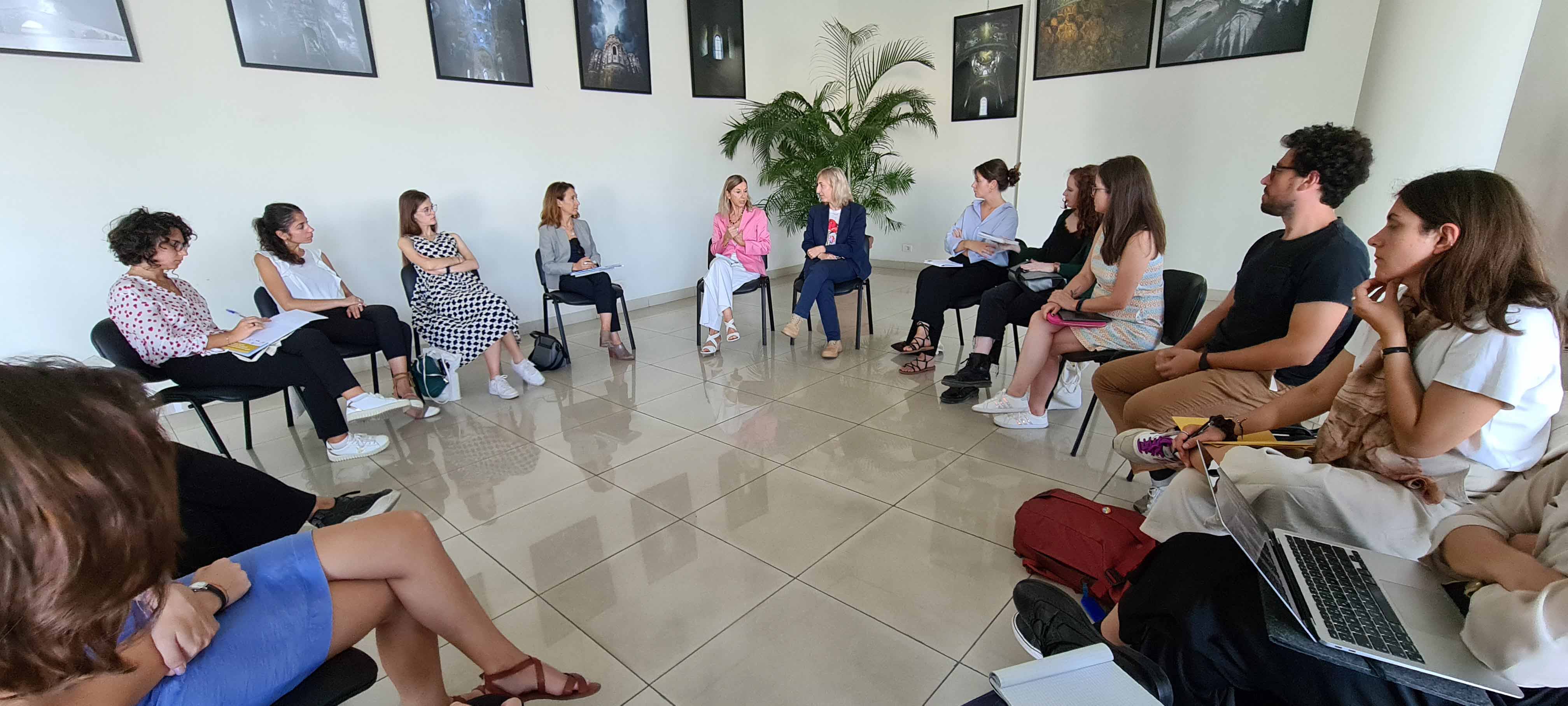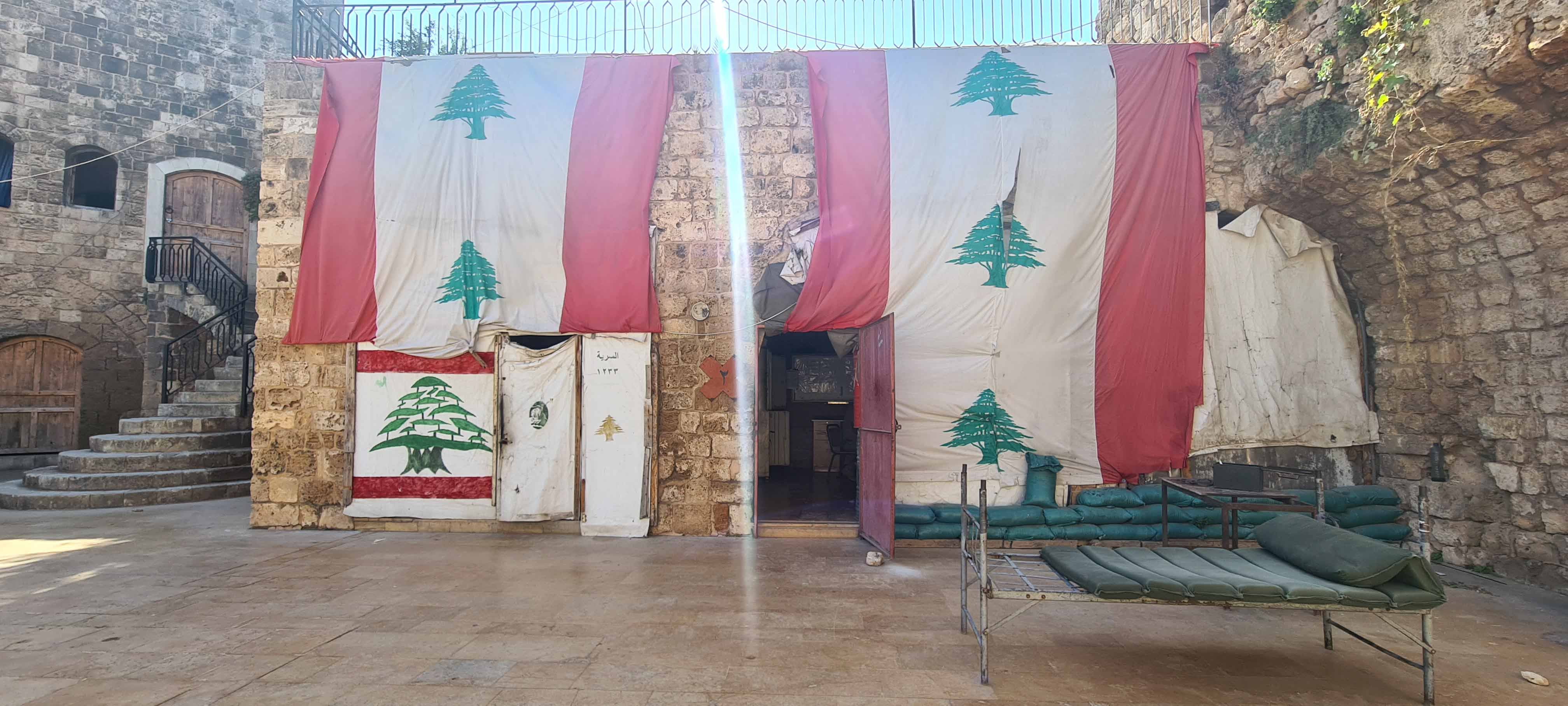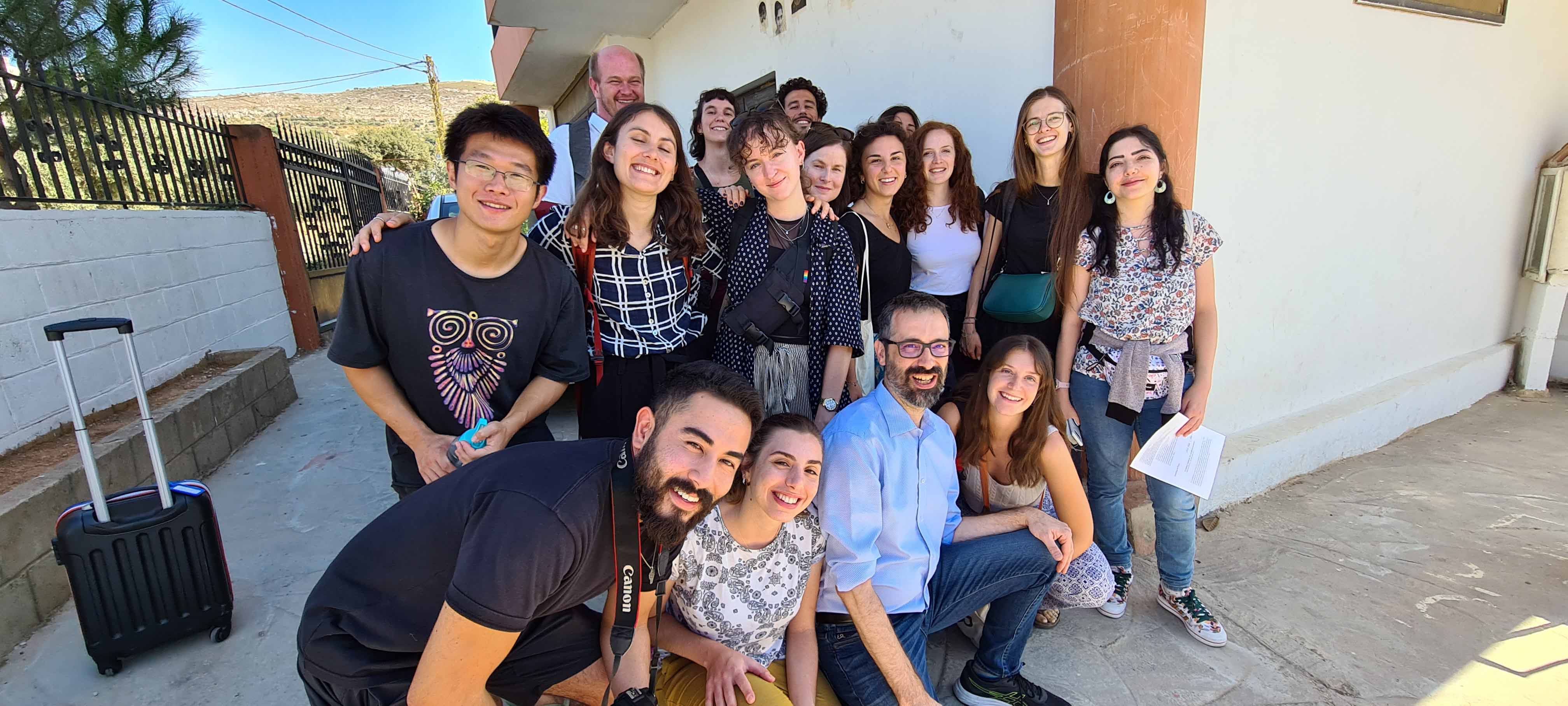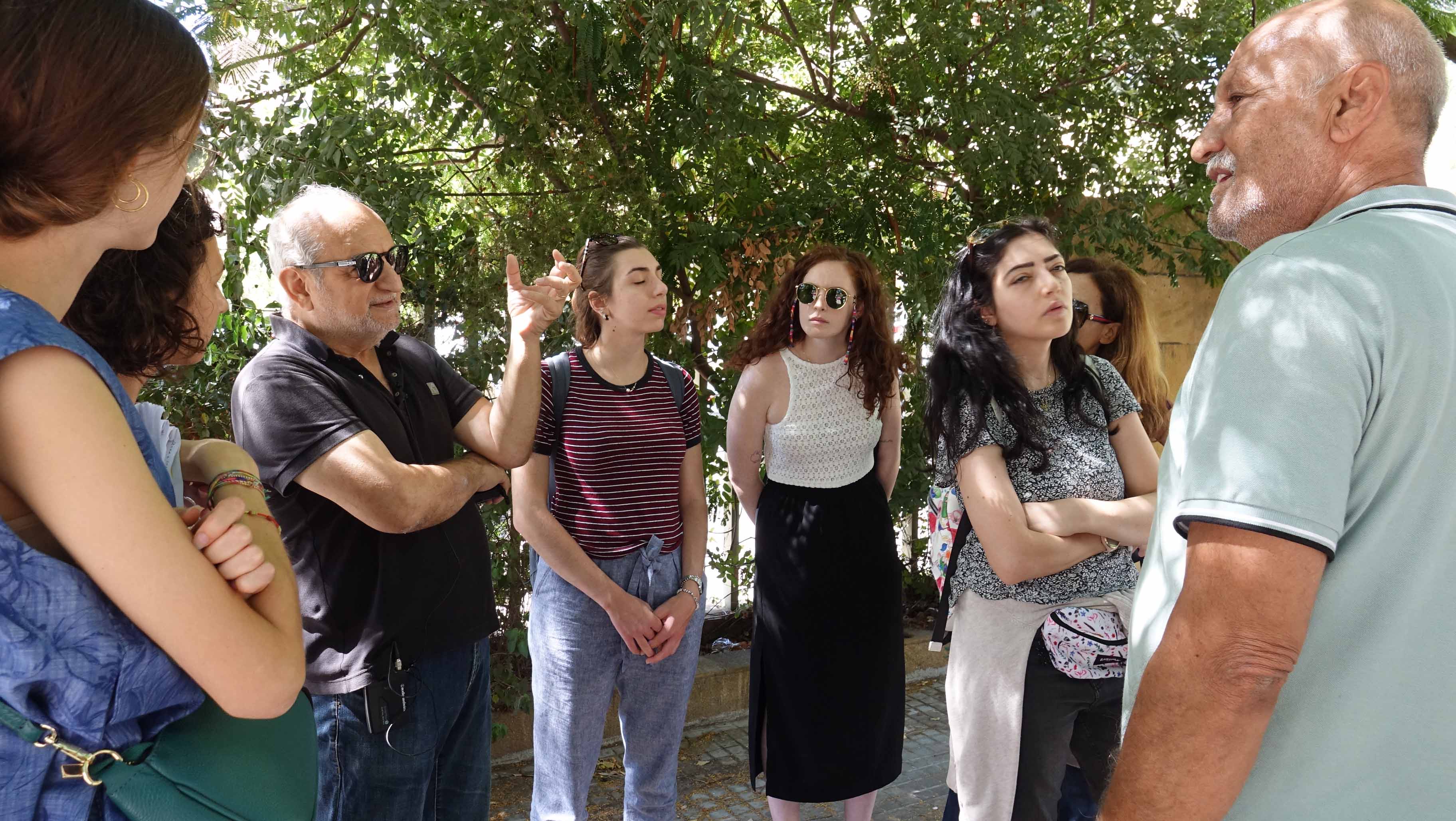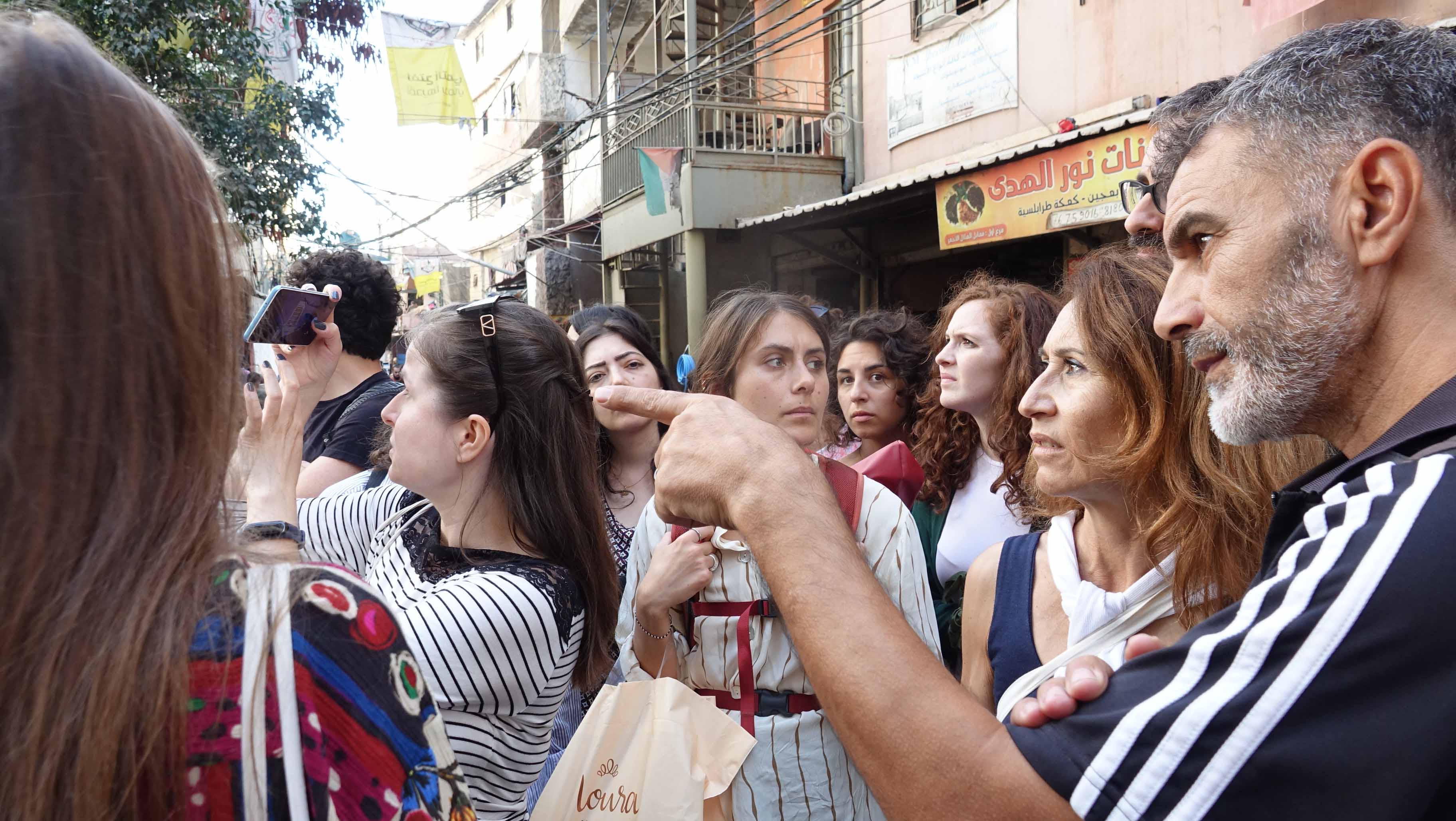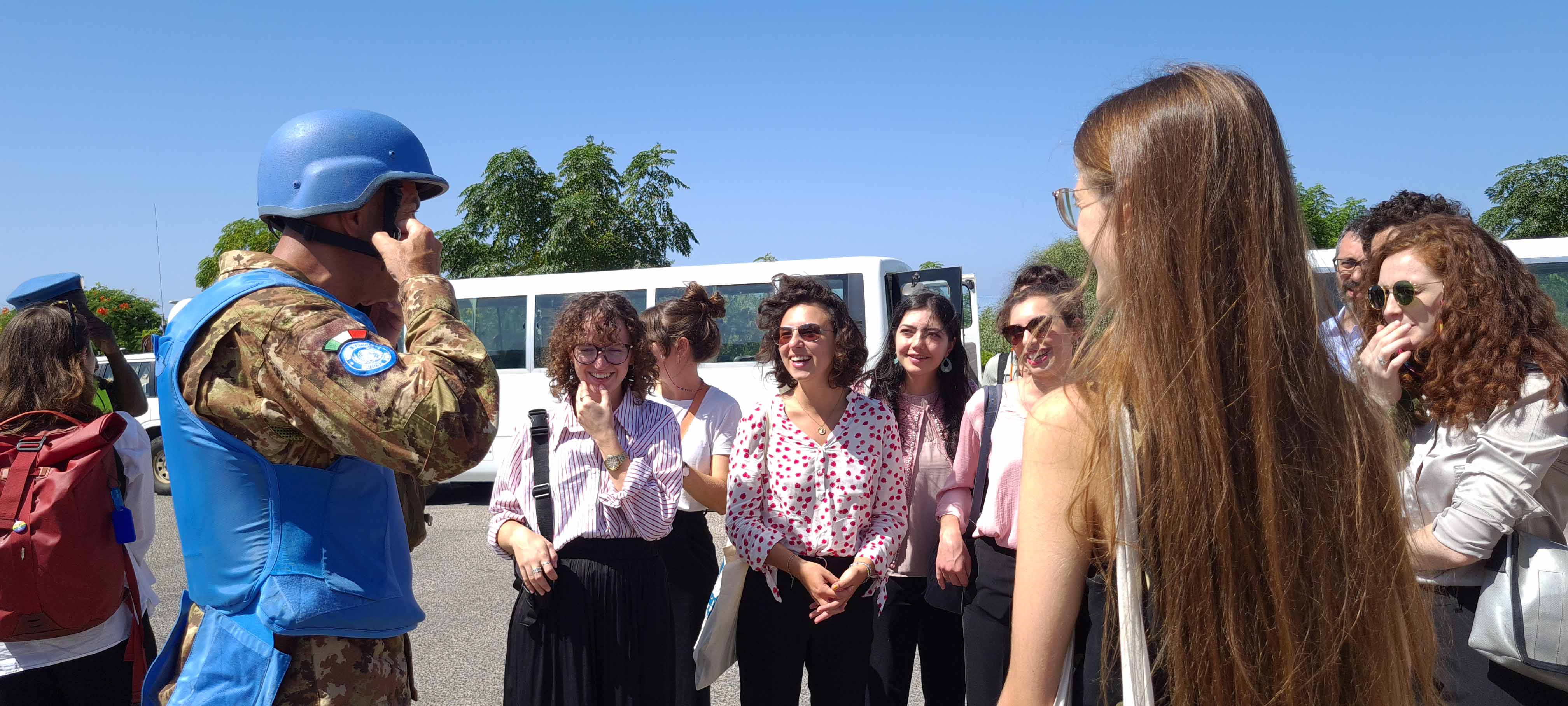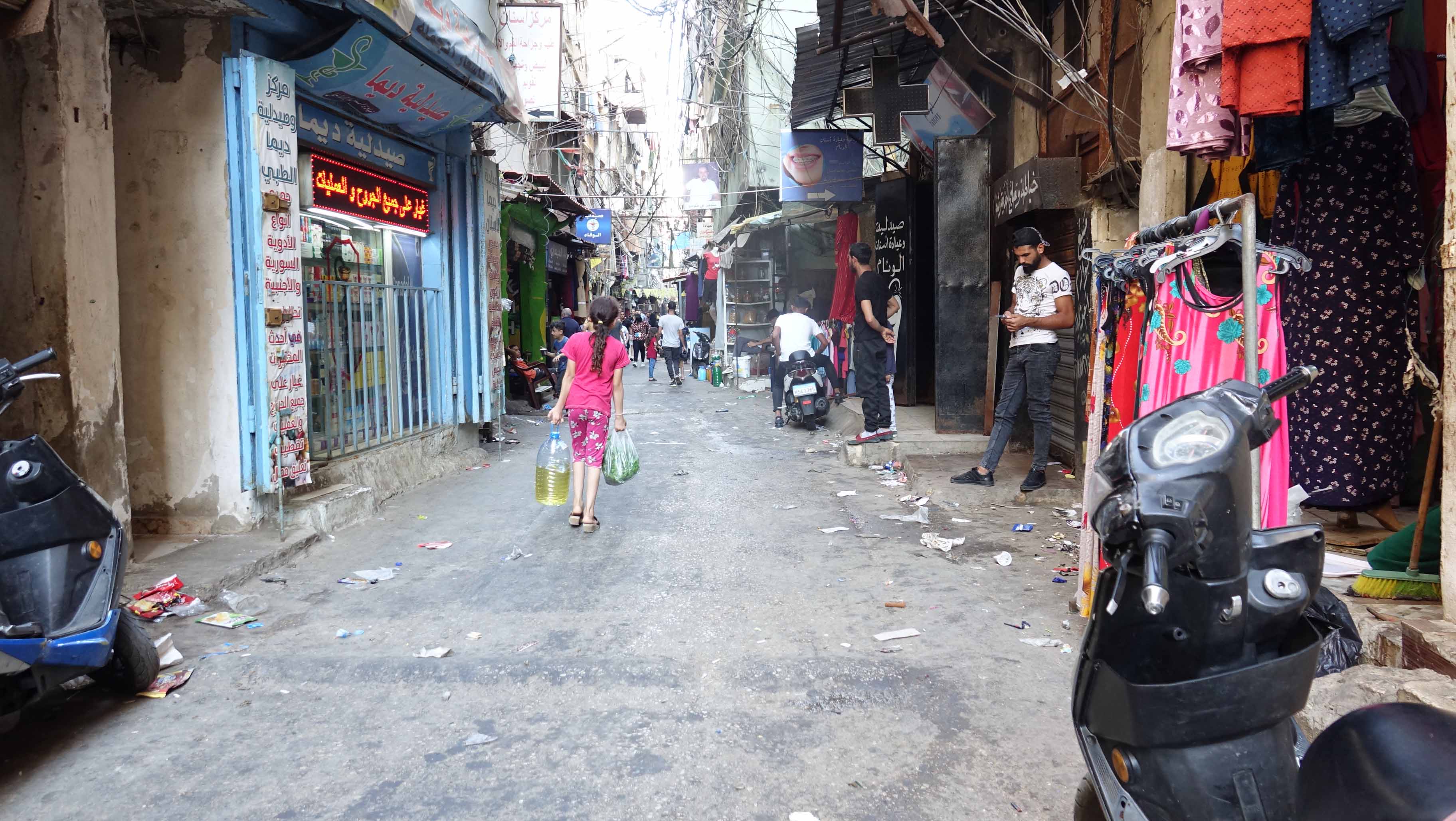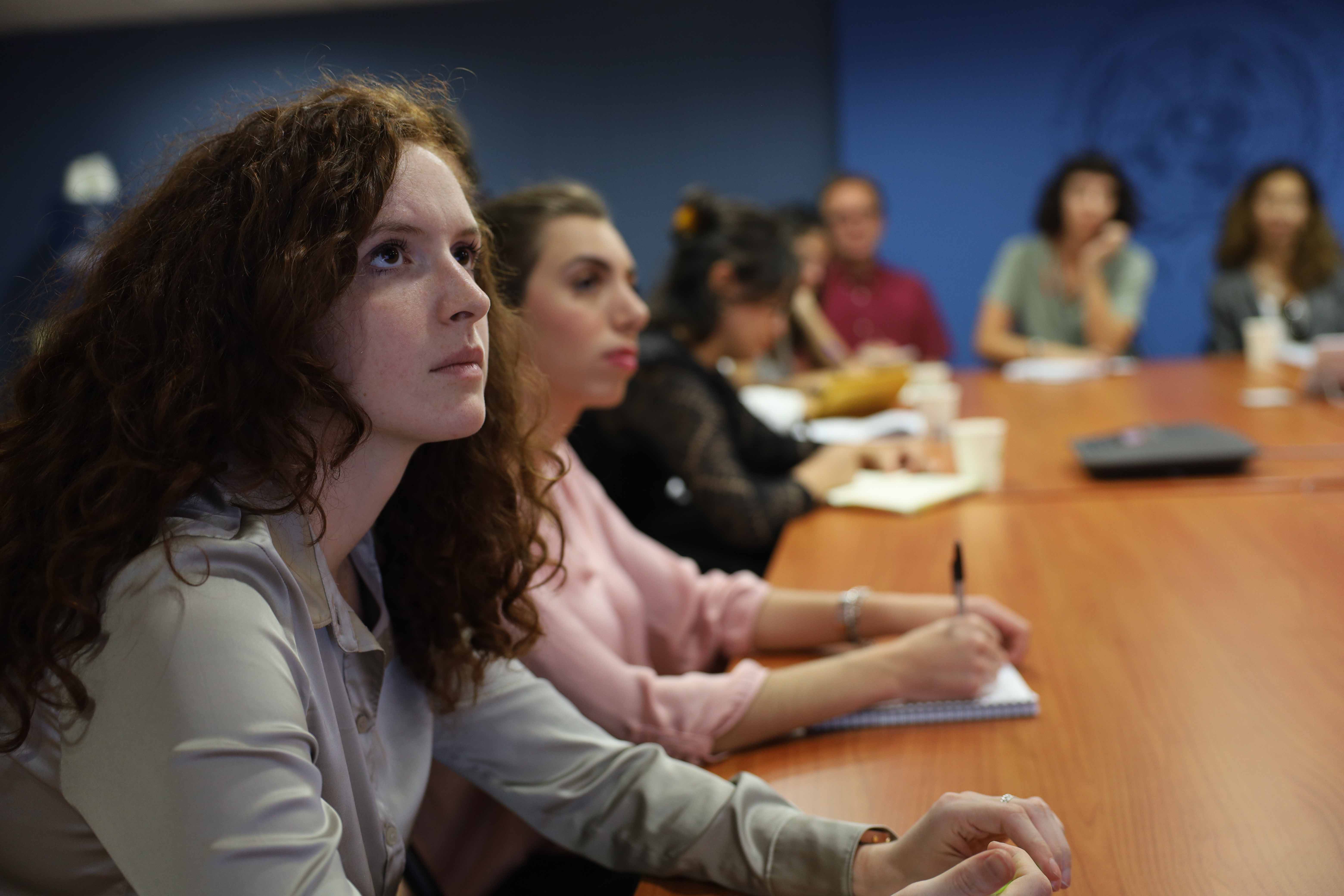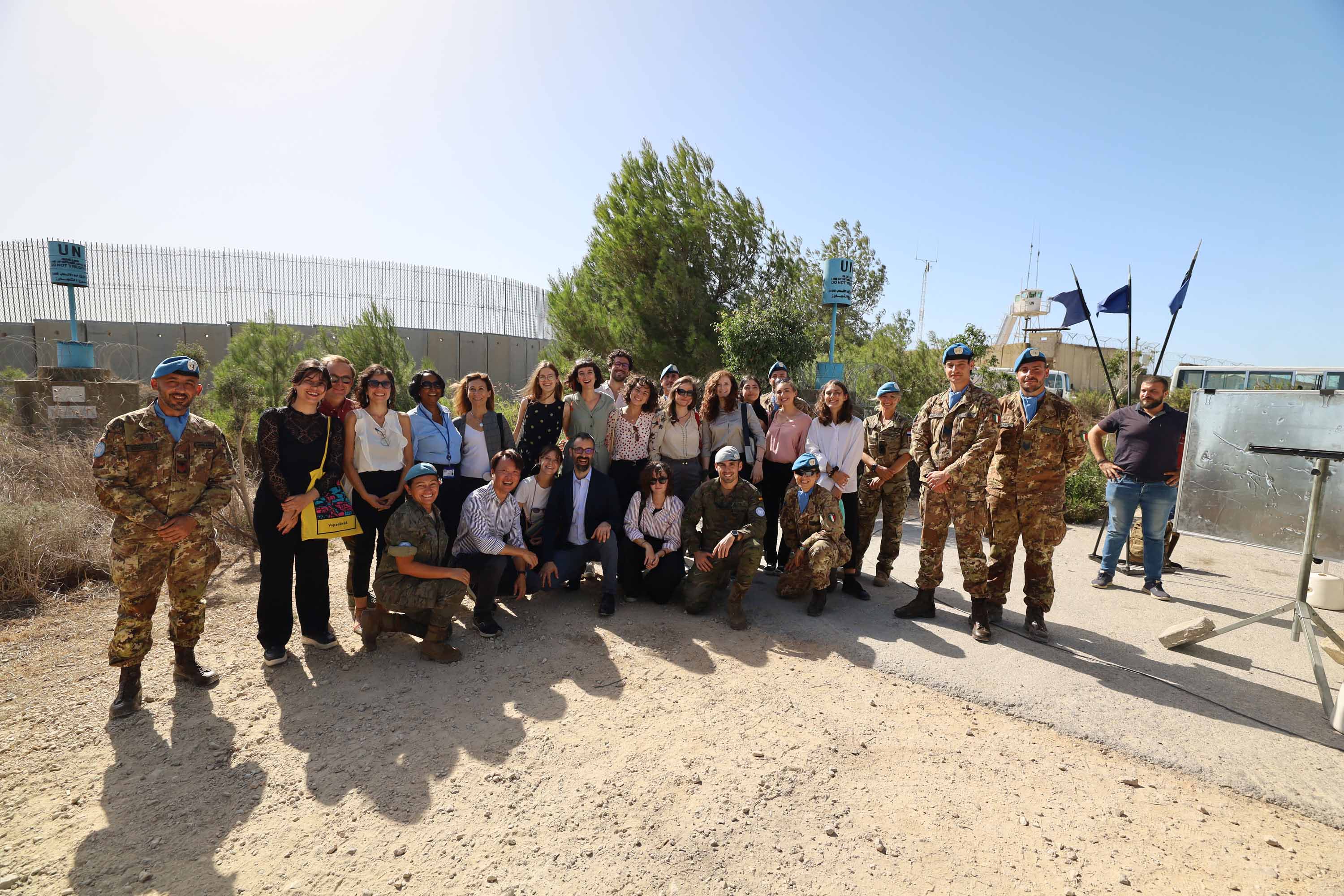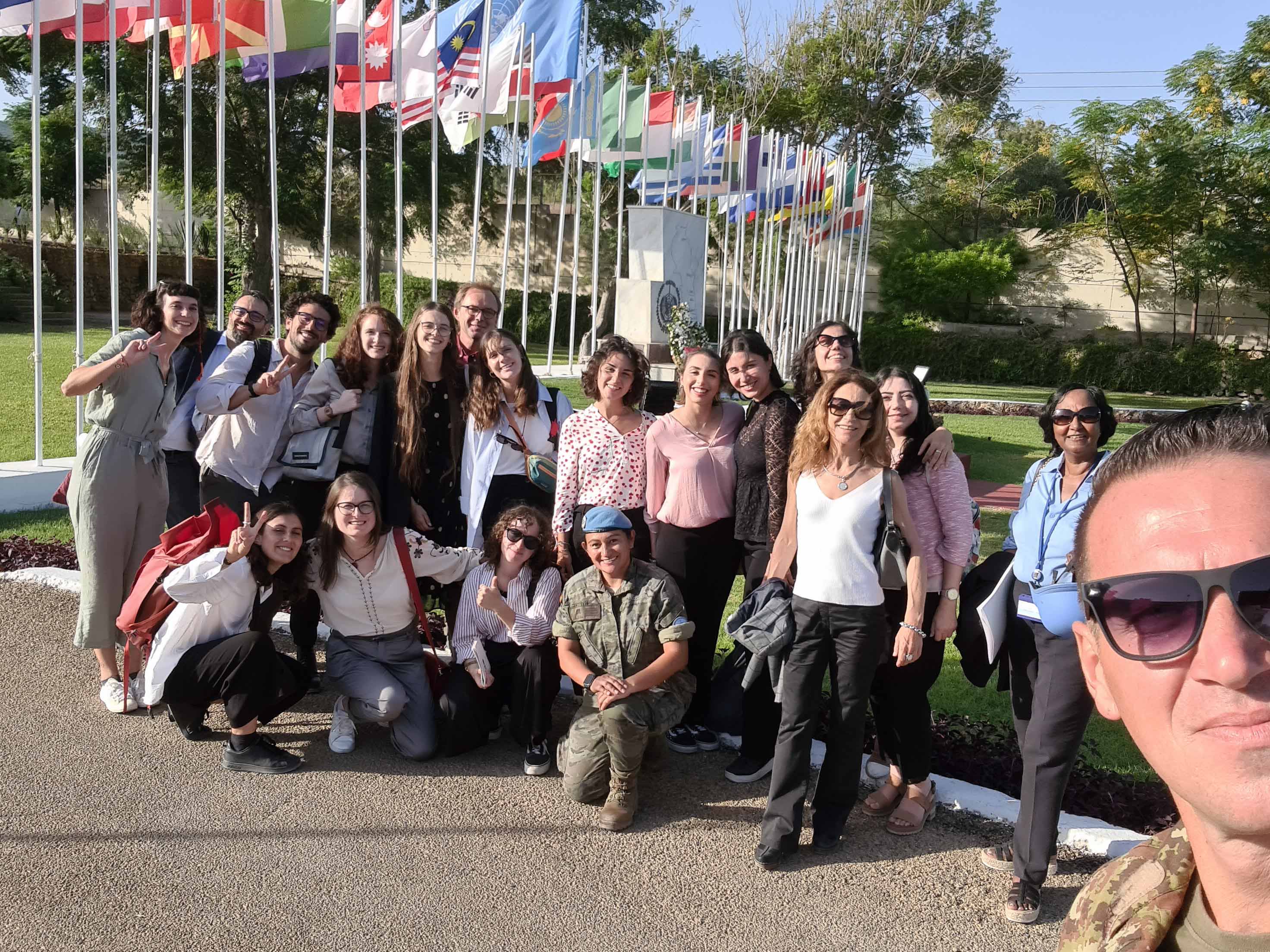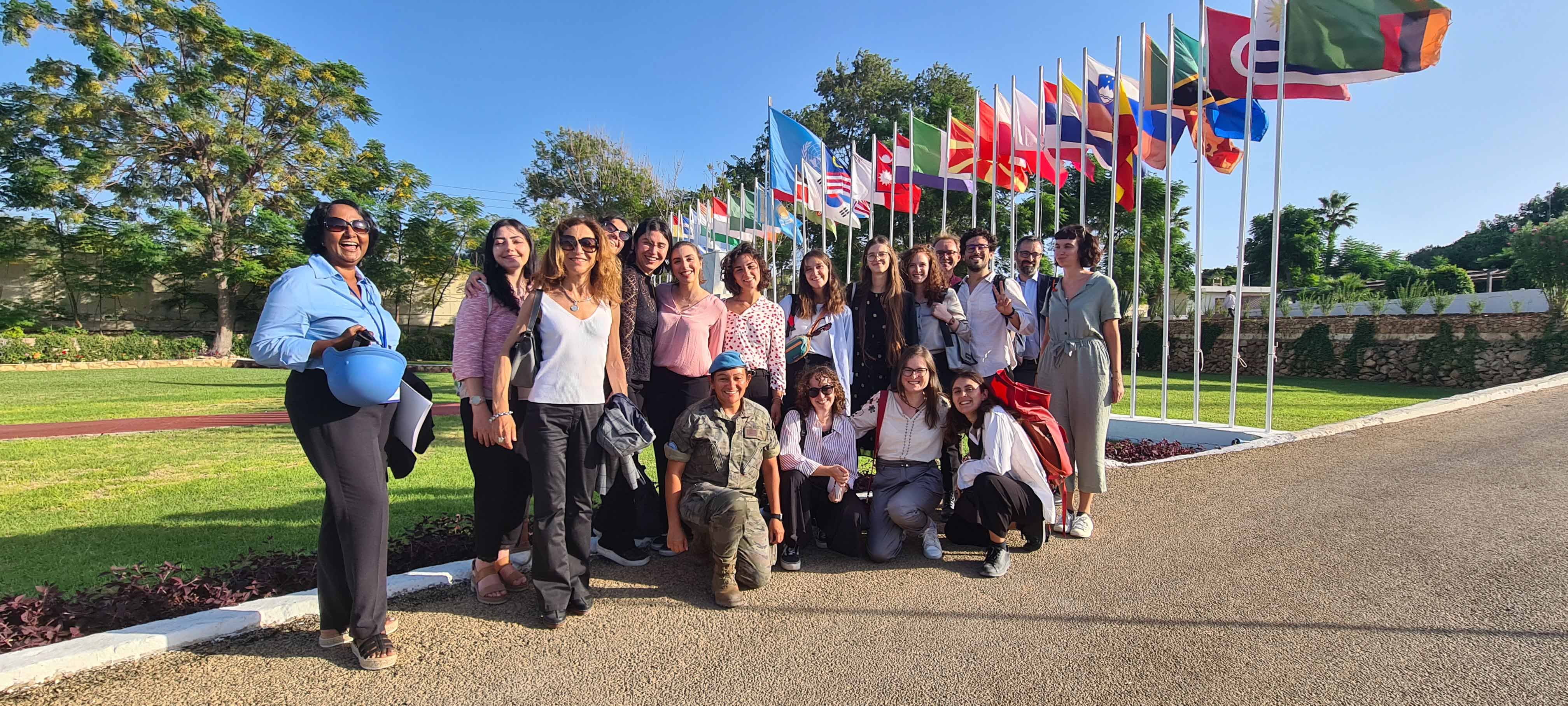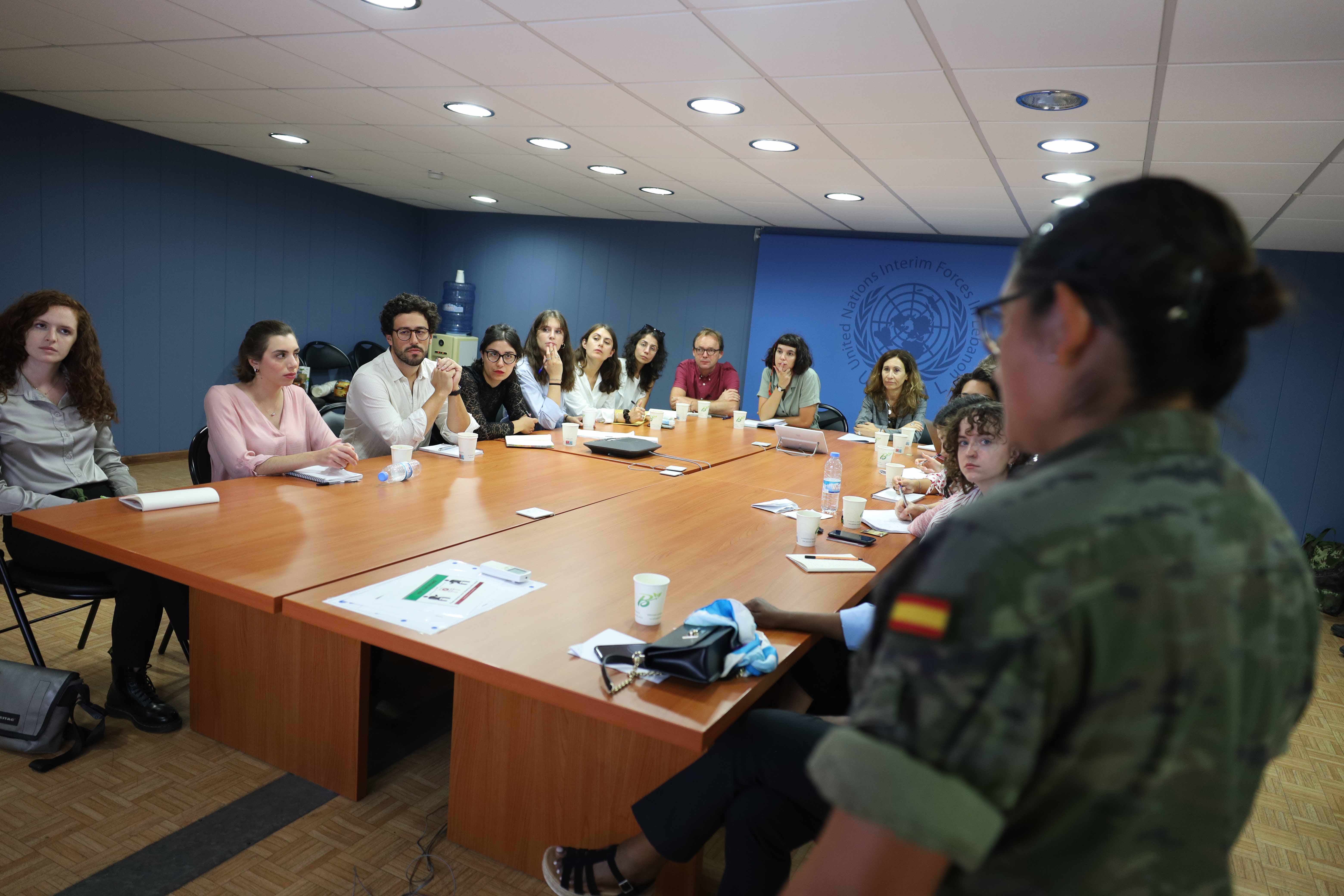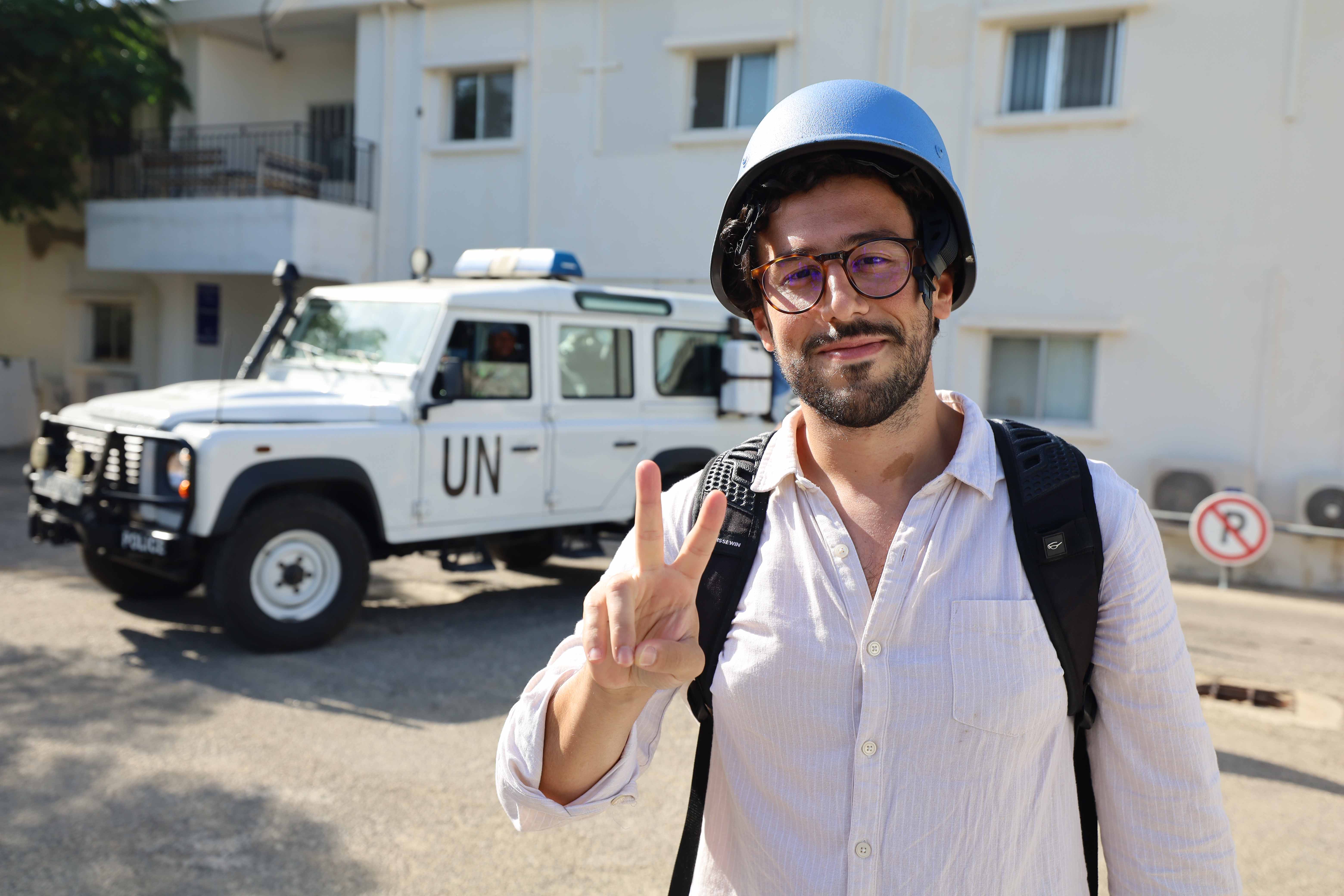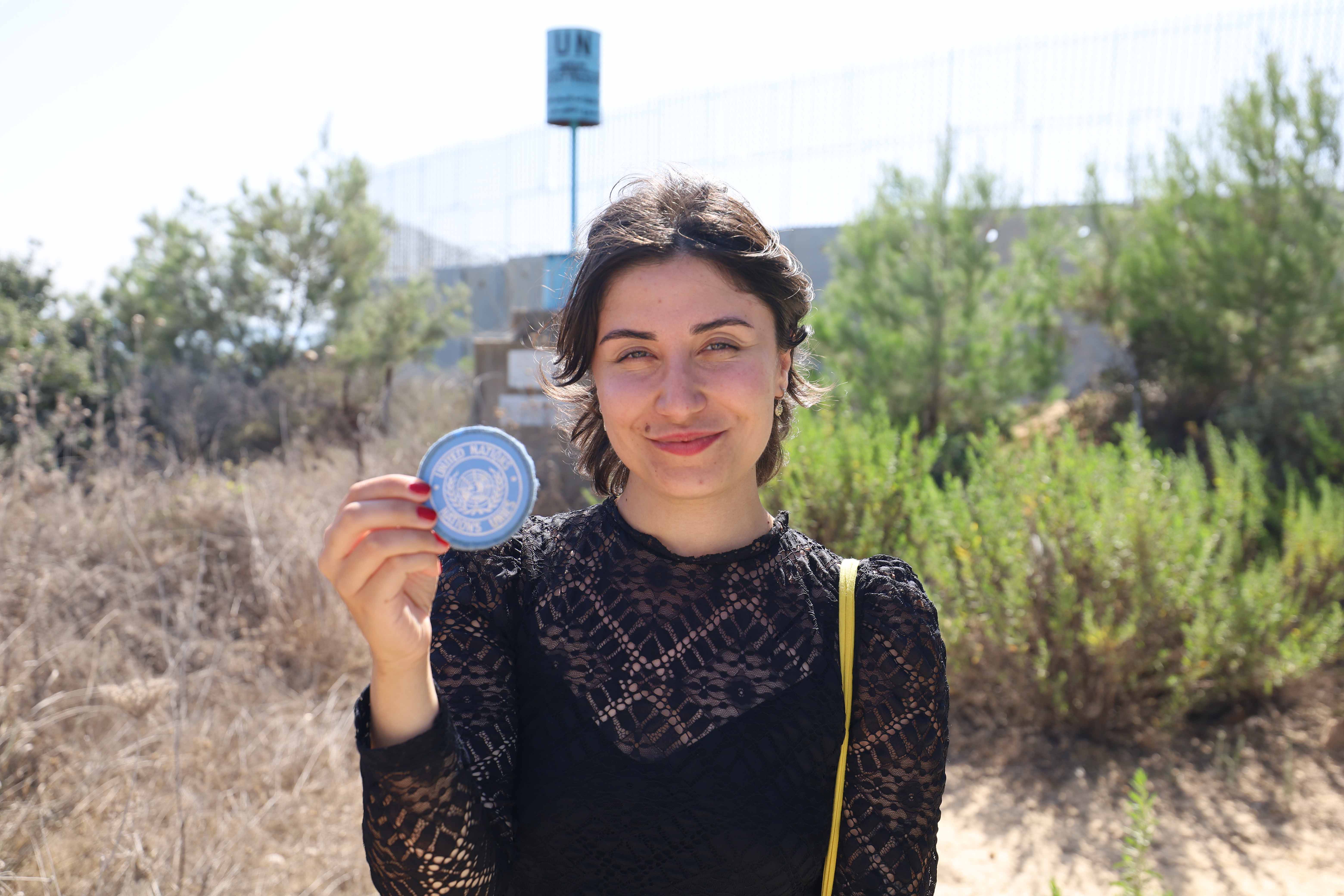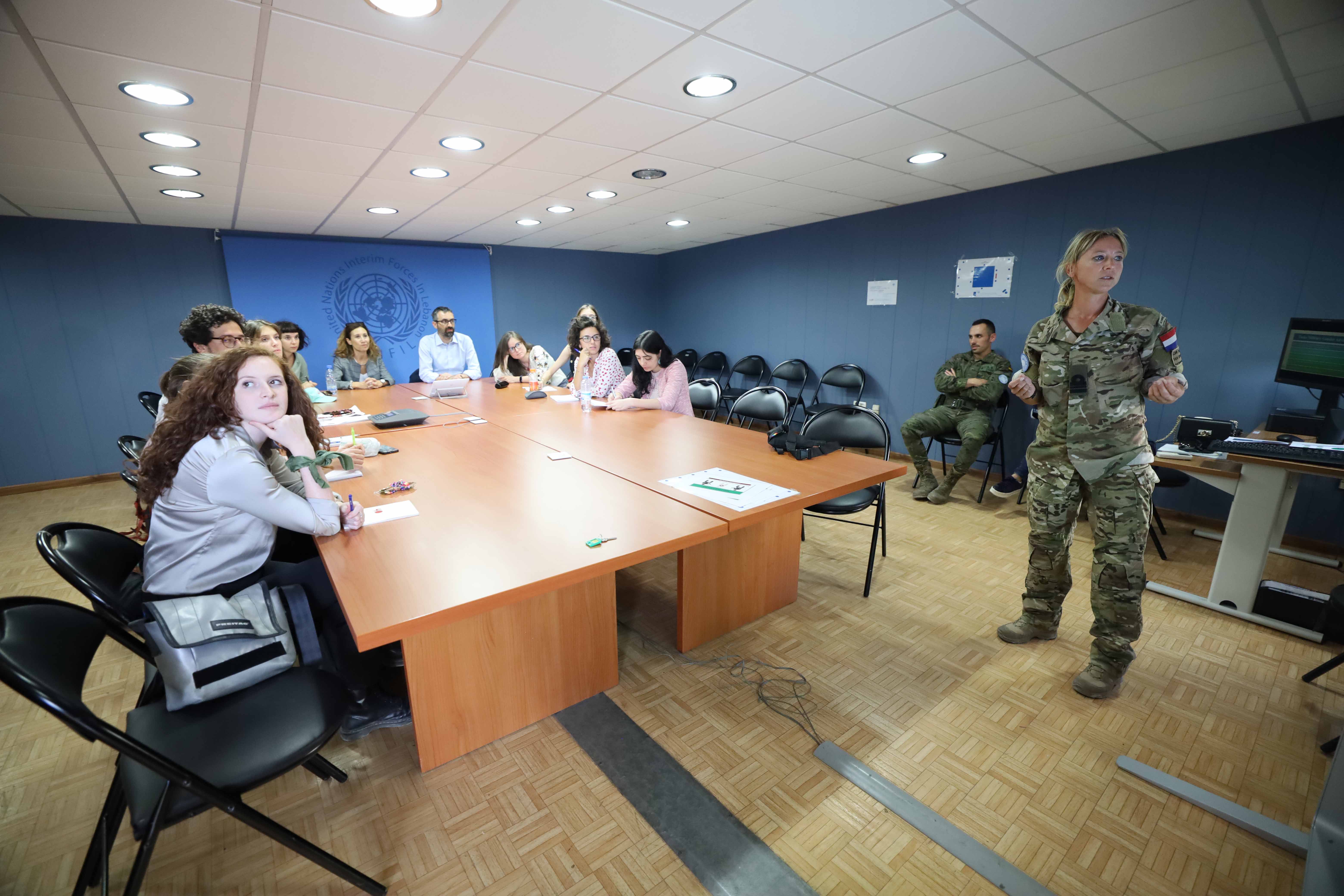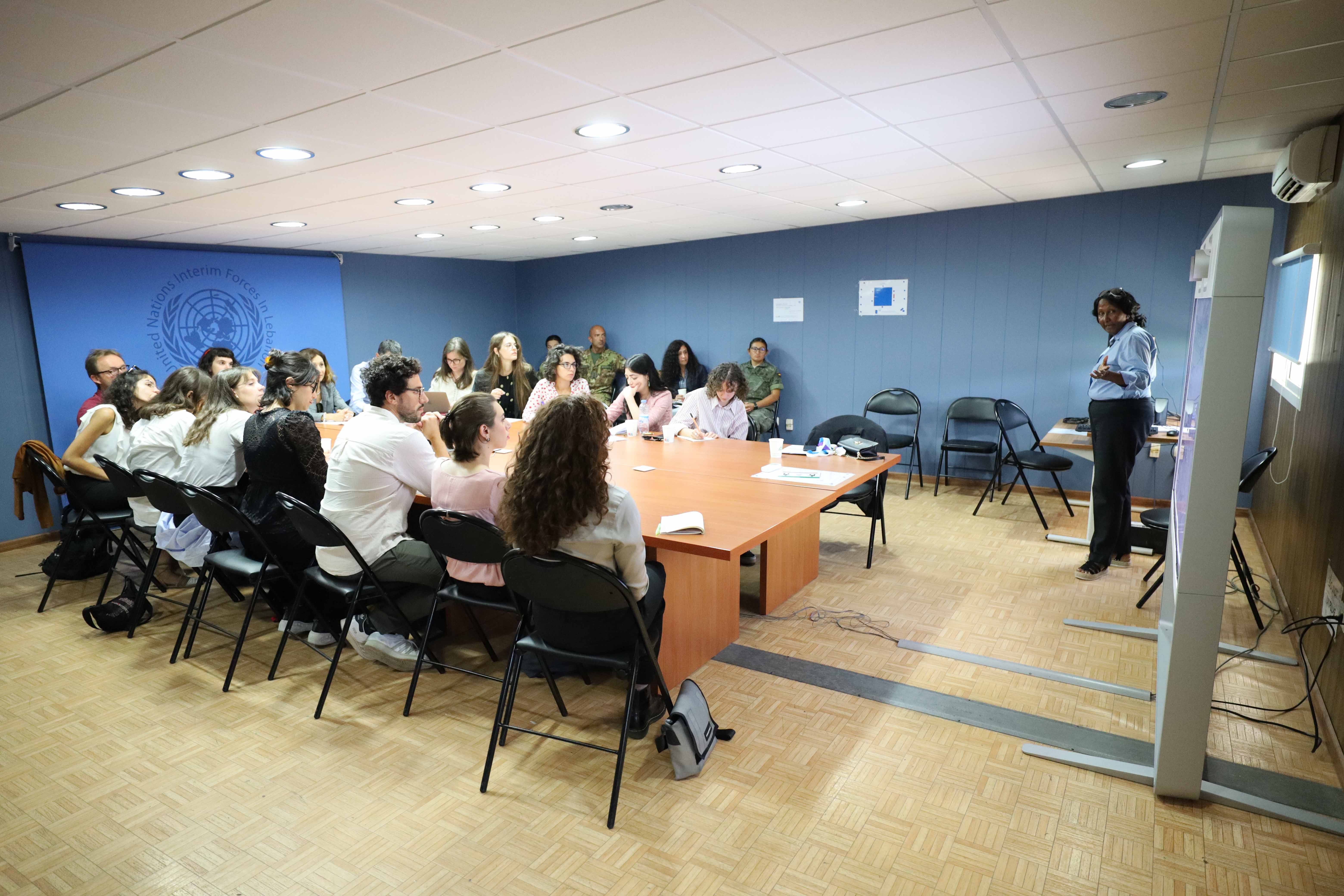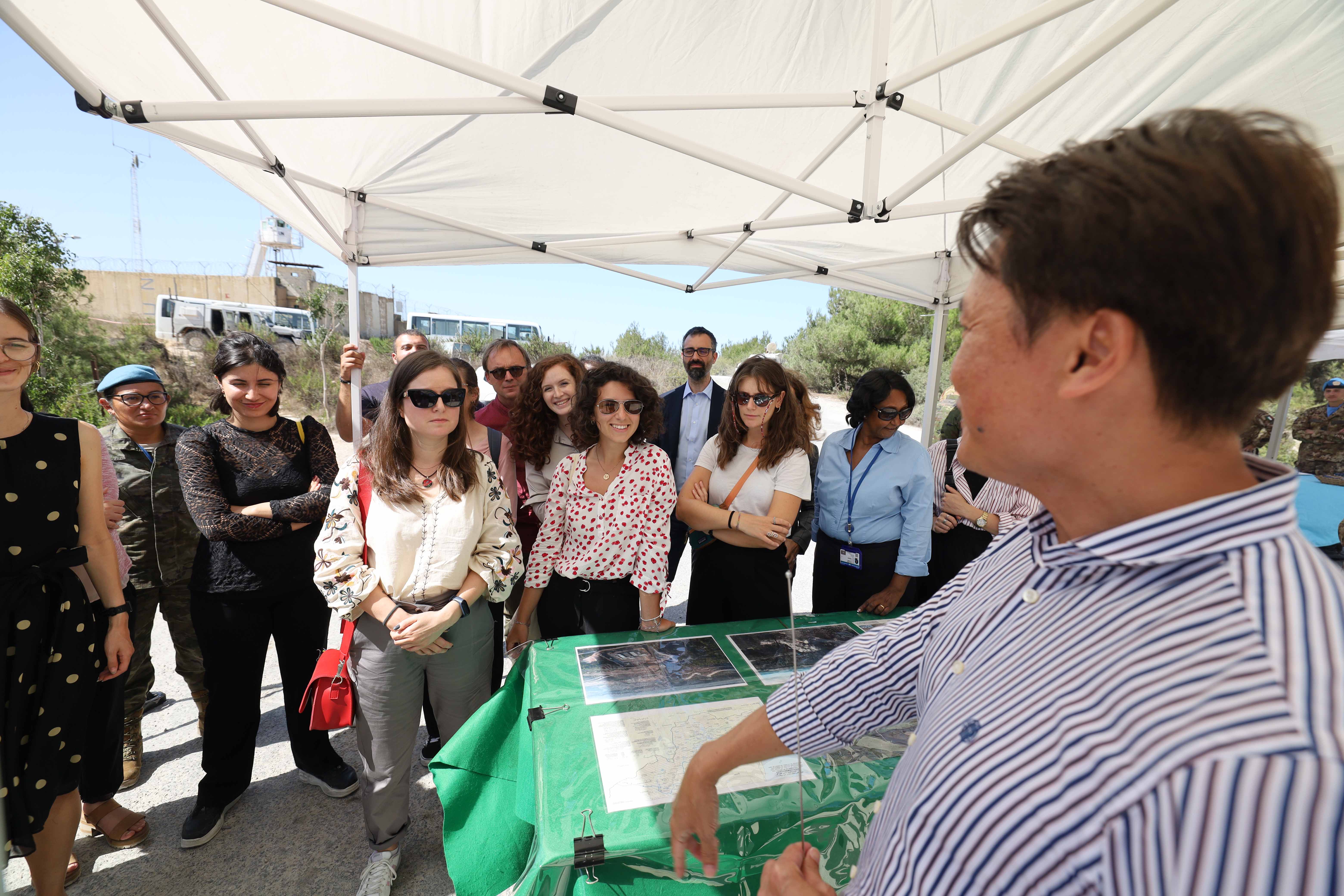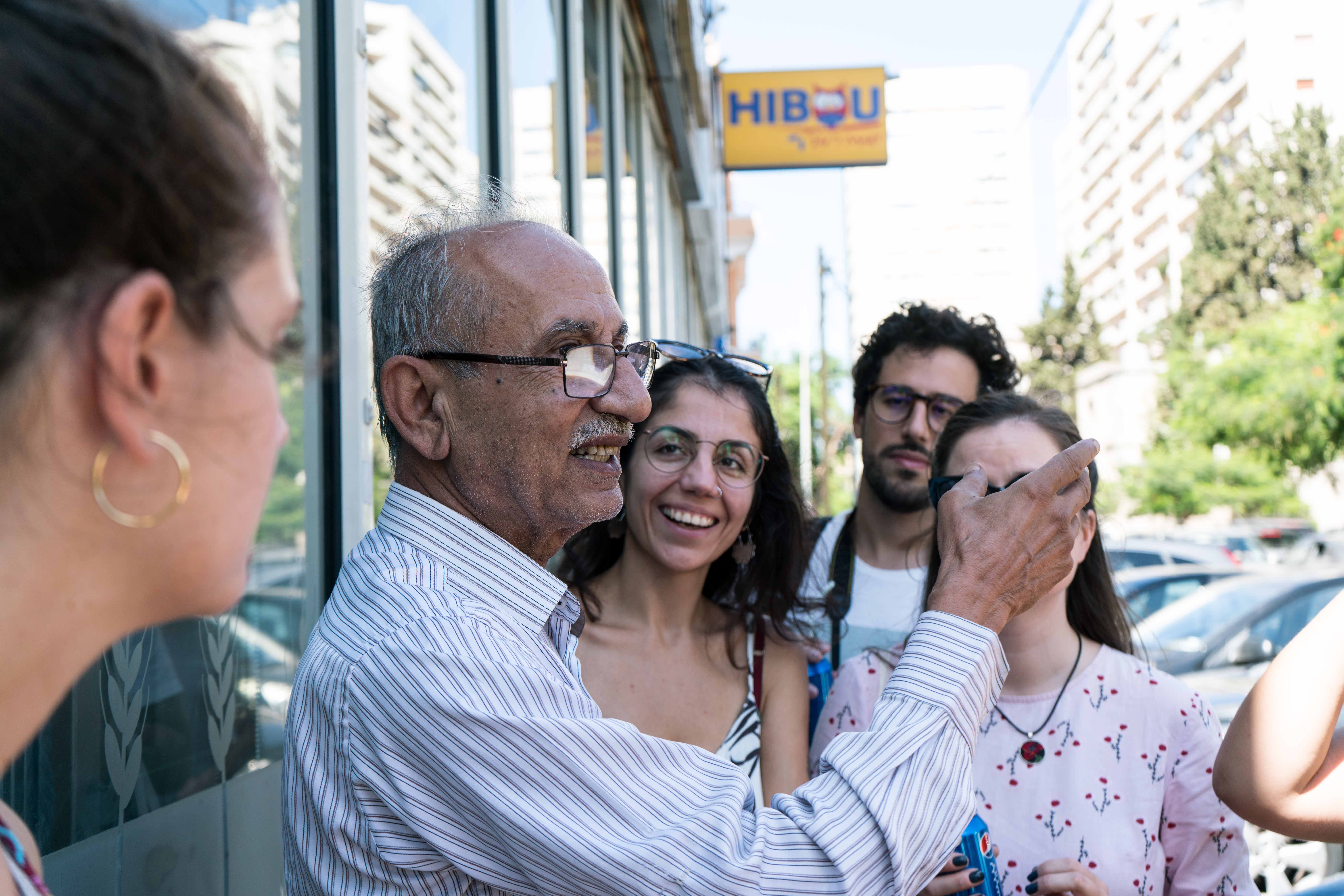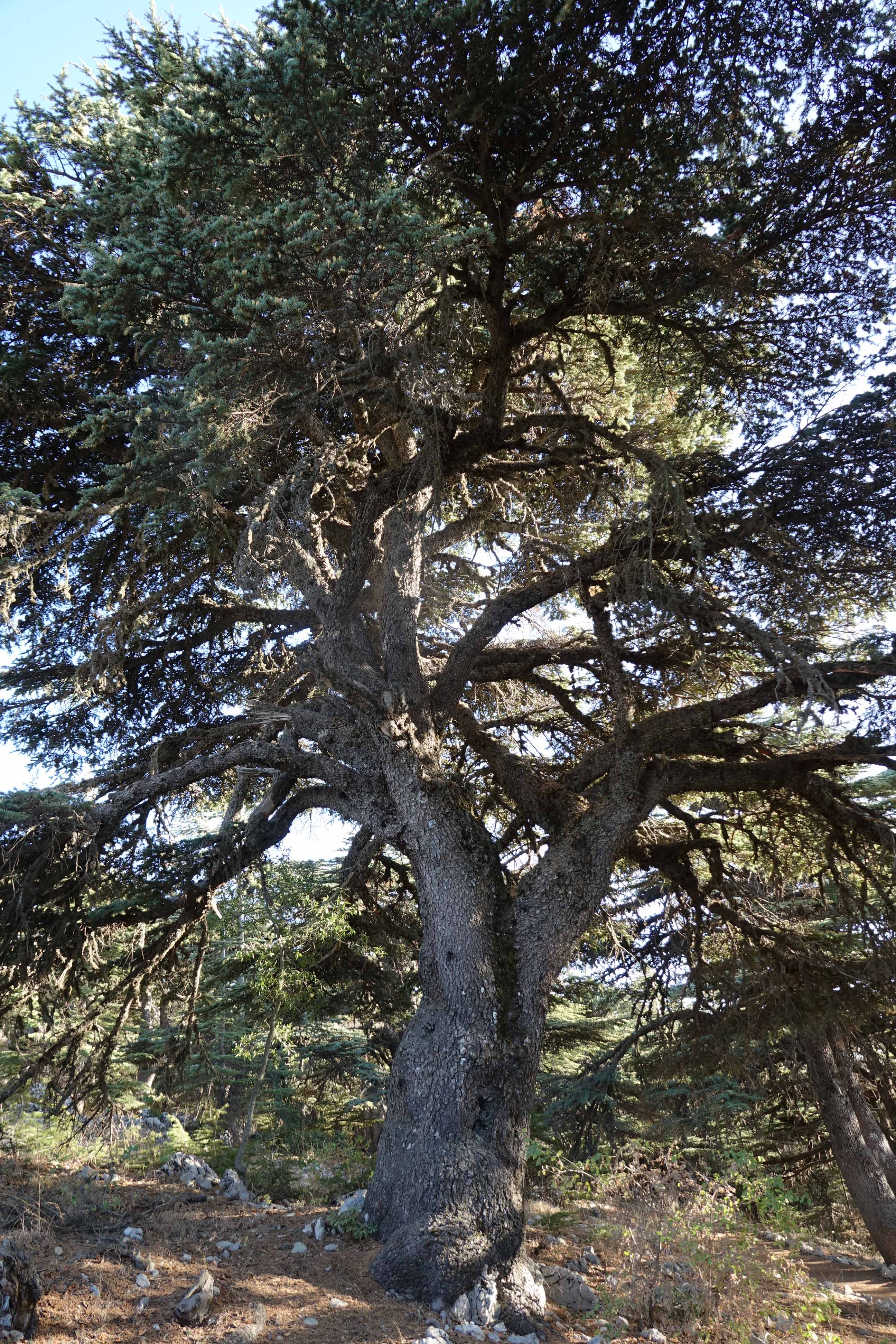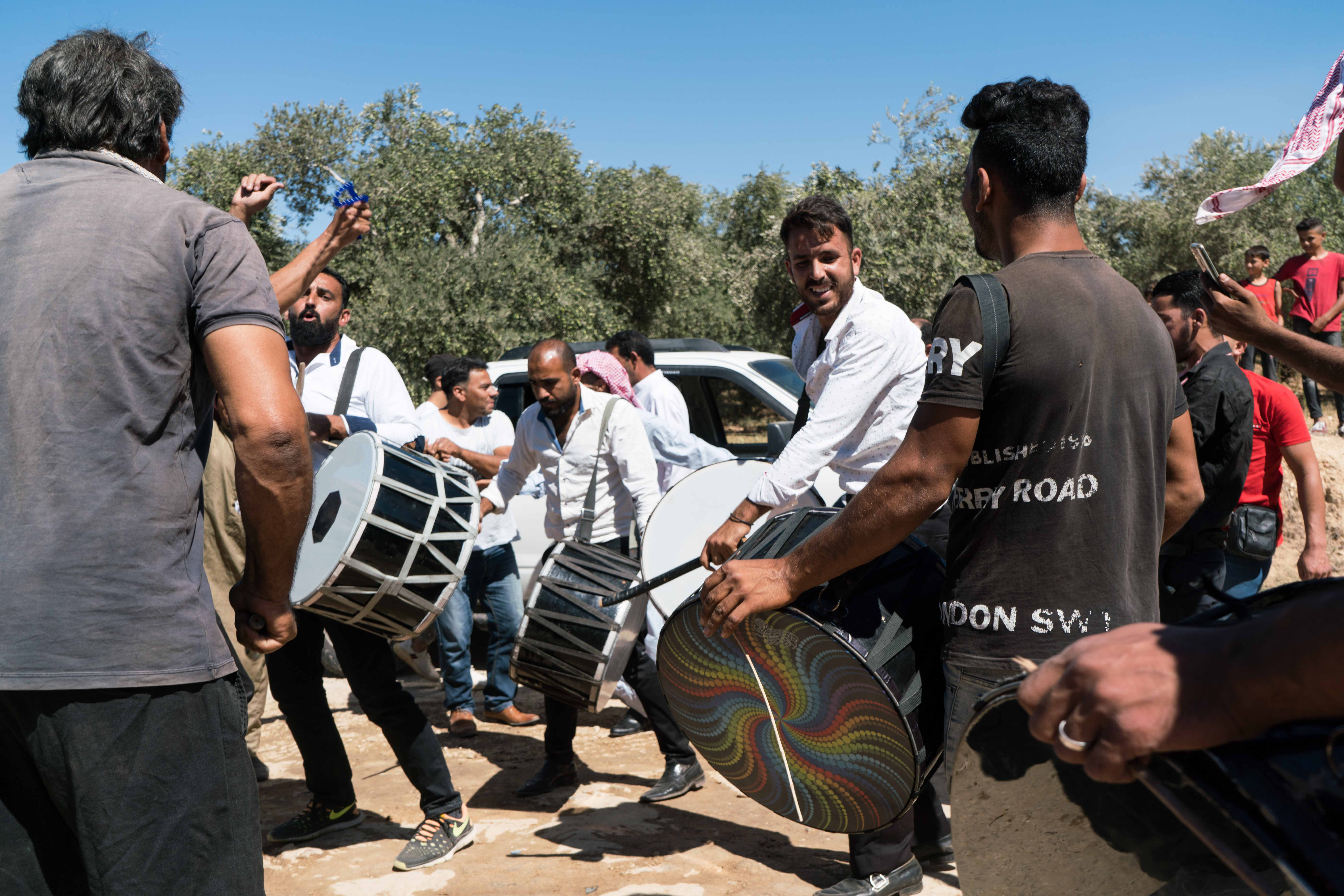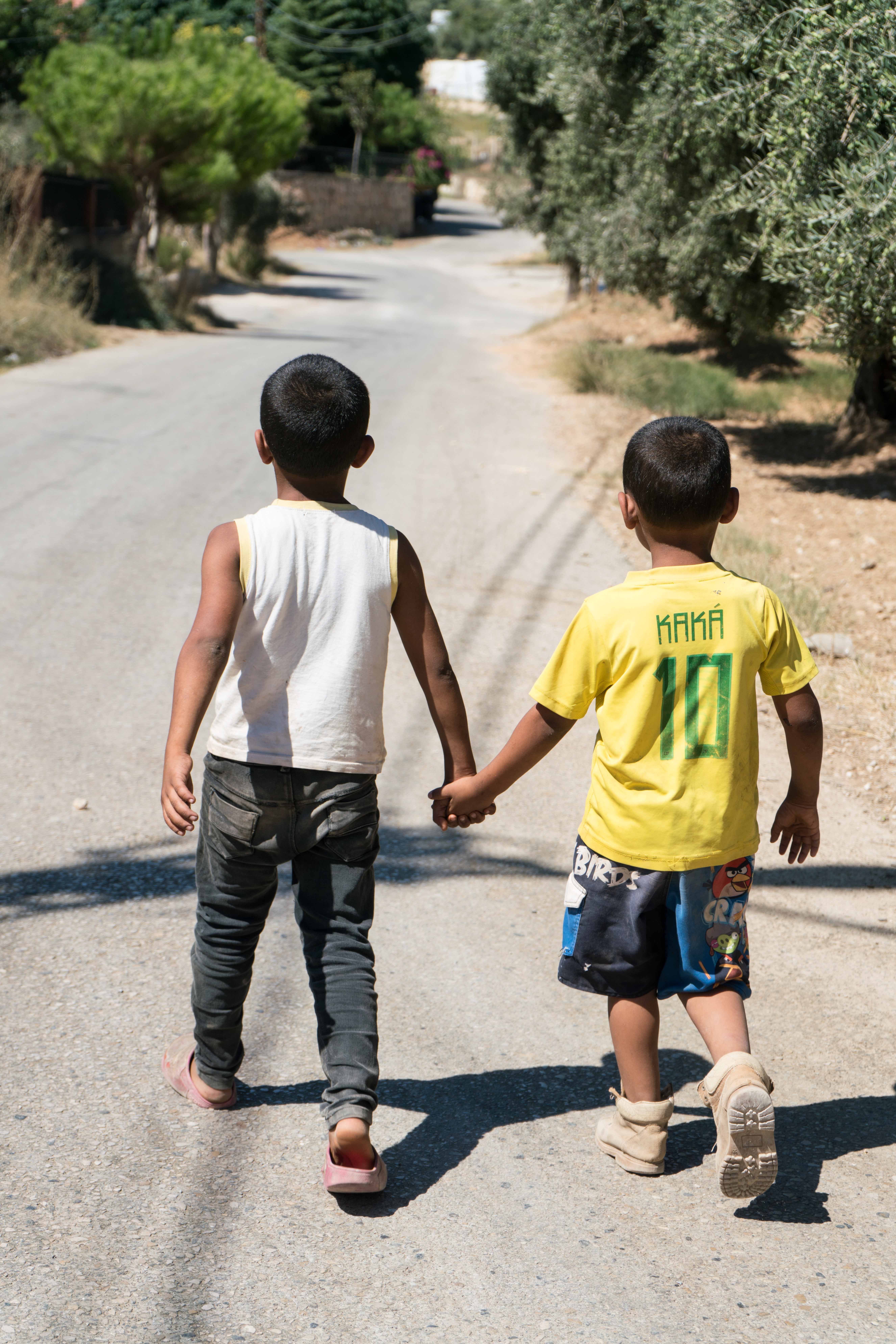Paths of peace: Lebanon Study Trip, 19-30 September 2022
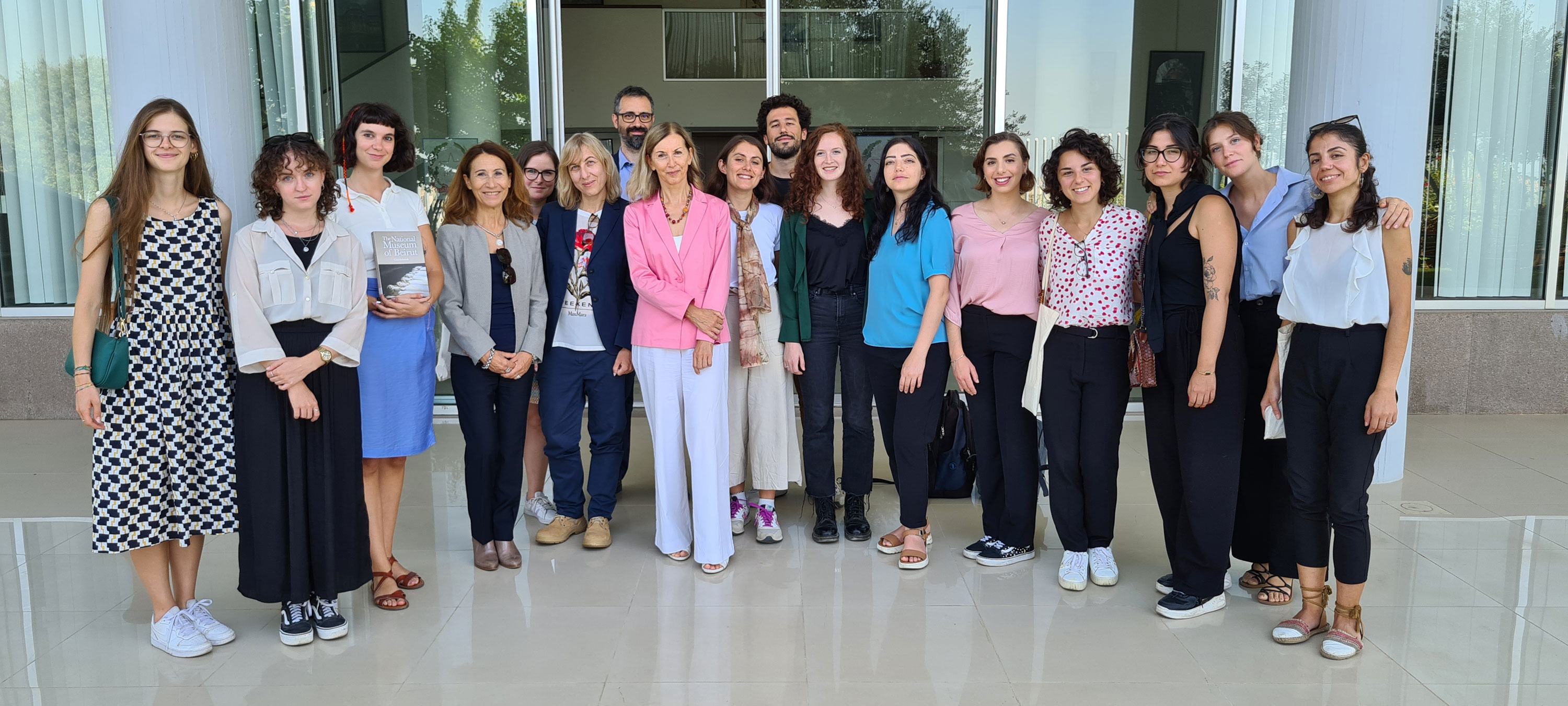
The study trip to Lebanon, which took place from 19 to 30 September 2022 and was attended by 12 students from the Human Rights and Multi-level Governance degree and the Human Rights, Society and Multi-level Governance doctorate at the University of Padua, has come to an end.
The initiative, realised in the framework of the project "Paths of Peace: a journey among women, youth and students between Italy and Lebanon for the implementation of the Agenda "Women Peace and Security", was an opportunity to learn about the concrete application in the Lebanese reality of the International Agenda "Women, Peace and Security" - created in 2000 with the historic resolution 1325 of the United Nations Security Council - and the corresponding Agenda "Youth Peace and Security" - developed in 2015 with resolution 2250 - which recognise the positive contribution of women and youth to peace processes. In this perspective, women no longer appear as 'victims' of conflicts and women/youth as a 'threat' to security, but as valuable agents of change.
The study trip was therefore an opportunity for direct experience, exchange of good practices and in-depth study thanks to the numerous meetings with local institutions and universities, representatives of international agencies, and civil society organisations committed to peacebuilding with a gender perspective in Lebanon. The group participated in seminars, training sessions, institutional meetings, as well as listened to several testimonies and interacted peer-to-peer on the study trip topics with Lebanese and international young people.
The study tour was promoted and organised by the Human Rights Centre "Antonio Papisca" and the UNESCO Chair "Human Rights, Democracy and Peace" of the University of Padua and the Civilian Defence Research Centre (Rome), with the support of the Ministry of Foreign Affairs and International Cooperation (MAECI) in the framework of the implementation of the 4th National Action Plan (NAP) on "Women, Peace and Security". The initiative was held in cooperation with local partners Permanent Peace Movement (Beirut) and Arab Master's Programme in Democracy and Human Rights (ARMA) / Global Campus of Human Rights (Beirut).
Monday 19 September
The group was welcomed by Shirine Jurdi (PPM and WILPF Lebanon), winner of the 2019 International Young Women's Peace and Human Rights Award from Democracy Today (Armenian civil society organisation). The meeting took place in Martyrs' Square, the main scene of the 2019 revolutions and still a place for gatherings and protest actions, and in the Beirut port area, where the terrible explosion of 4 August 2020 took place.
Tuesday 20 September
The visit to the National Museum in Beirut was done with torches, because the electricity supply is not guaranteed even during working hours; only certain areas or buildings have continuous electricity through power generators. The National Museum is a testimony to the country's thousand-year history and its role in Mediterranean cultures, and offers visitors a collection of archaeological objects from the different civilisations that have passed through Lebanon. The Museum has an active collaboration with the Italian Embassy in Beirut and the Italian Agency for Development Cooperation (AICS).
This was followed by a meeting with the Forum Zfd (Forum Ziviler Friedensdienst), promoter and active part of the Civil Peace Service project established in 1998 by the German government. Jenny Munro, project manager of the 'Dealing with the Past' programme, spoke about the conflict transformation work carried out by the organisation in cooperation with local partners, giving as an example the development of a new approach to teaching history in Lebanon.
In the afternoon, the students visited the headquarters of the United Nations High Commissioner for Refugees - UNHCR in Lebanon. During the meeting, the situation of refugees in Lebanon and the role of UNHCR in a country that has not yet ratified any international instrument on the subject were explored. The action of this organisation is particularly important, since Lebanon is the country in the world with the largest number of refugees in relation to its population (it hosts around 1.5 million Syrian refugees). The meeting focused on the living conditions of Syrian refugees in Lebanon, focusing on the issues of schooling and violence against women.
Wednesday 21st September
On 21 September, the meeting with Fighters for Peace, an association founded in 2013 by ex-combatants of the violent Lebanese civil war (1975-1990), allowed the students to listen to some direct testimonies from ex-combatants who recounted their dramatic personal experiences of the war period and their current commitment to peace education and non-violence activities in schools, to prevent the return of violence and avoid future wars.
At the end of the meeting, members of the association accompanied the group on a visit to the Green Line, the symbolic demarcation line that divided Beirut into two fronts, east and west, during the civil war. It was a moment of great emotional impact, where ex-combatants told anecdotes of the civil war and showed some of the key sites, with the help of the app developed by Fighters for Peace (Green Line LB). The walk ended with a visit to Beit Beirut, an art project housed in the Yellow House, a building that encapsulates the different identities of Beirut and Lebanon: a neo-Ottoman style house, former outpost and sniper base and now a museum and cultural hub.
In the afternoon, at the University of Saint Joseph, the students took part in a study seminar held by two lecturers from the Arab Master's Degree in Democracy and Human Rights - ArMA- Global Campus (Wissam Laham and Youmna Makhlouf), who delved into the Lebanese context, in particular with regard to the current crisis of the economic and legal system, marking recent developments in a political framework strongly characterised by corruption, clientelism and inefficient state action (failed state).
Thursday 22nd September
The next day, Fadi Abi Allam, from Permanent Peace Movement (PPM), the project's local partner, outlined PPM's mission and its priorities: peace building at local, national and international levels, the dissemination of a culture of peace and conflict prevention mainly through peace education activities. The floor was then passed to Shirine Jurdi, a member of Women's International League for Peace and Freedom - WILPF, who outlined the history of women's political participation in Lebanon from the colonial period to the recent general elections in spring 2022, which gave new impetus to women's demands, following the failure to deliver on promises of emancipation and involvement. The morning continued with training activities.
In the afternoon, the students met with young activists from the Young Women Leaders for Peace programme (which also includes young people from secular clubs) who spoke about their commitment to community and country. Two girls, a Palestinian refugee working as a librarian in the refugee camp and a Lebanese high school student, gave two concrete examples and told two different perspectives on the activism of young women and girls in Lebanon.
Friday 23rd September
The students were received by Raghida Ghamlouch of AABAD - Resource Centre for Gender Equality. The NGO ABAAD, winner in 2014 of the Womanity Award for using innovative methods to end gender-based violence, works to achieve gender equality as a necessary condition for lasting and sustainable peace. In particular, the meeting provided an insight into the work the NGO does in response to gender-based violence, both by providing shelter and support to women victims of violence and by working with male perpetrators to support the development of positive masculinity models and roles.
In the afternoon, the students were again guests of the Arab Master's in Democracy and Human Rights - ArMA for a meeting with Nadya Khalife and Menaal Munshey, consultants on human rights and women in the Middle East and North Africa at the United Nations Economic and Social Commission for West Asia (ESCWA), who presented the Lebanese Action Plan on the Women, Peace and Security Agenda and explained its adoption process. This was followed by a talk by Myriam Sfeir, Director of the Arab Institute for Women at the American University of Lebanon, with a screening of two documentaries made by the Institute on the role of Lebanese women during the Lebanese civil war and the recent October 2019 revolution.
Saturday 24th and Sunday 25th September
The weekend began with a visit to the city of Tripoli in northern Lebanon, where the group, together with some ArMA students, met Obaida Takriti, a young activist and social entrepreneur. During the meeting, the country's confessional situation, the 2019 protests and the recent general elections were discussed.
Over lunch, the group was hosted by MARCH, a non-profit organisation established in 2011 with the aim of promoting social cohesion and gender equality on Syria street, the street that divides the neighbourhoods of Beb El Tabbaneh and Jabal Mohsen, historically divided by a religious feud. MARCH involves young people in community service projects, art workshops and vocational training courses. The students were then able to visit the citadel of Tripoli and the 'souks', typical medieval Middle Eastern markets.
In the afternoon, the students arrived at the Peace Centre of Relief and Reconciliation for Syria in Bkarzla, a village near the northern border with Syria, in the Akkar region, the poorest region of Lebanon. Here the students were welcomed by Friedrich Bokern, the association's founder, and had the opportunity to learn about the association's work with Syrian refugees, in particular with training activities aimed at young people, and to visit the Maronite village of Bkarzla, where the feast of Saint Moura, the village's patron saint, was being celebrated.
After spending the night at the Peace Centre, the following day the group, accompanied by Friedrich, visited other towns and villages, archaeological sites and locations in the valley, along the border with Syria.
Monday 26th September
The students visited the UN mission in Lebanon, United Nations Interim Force in Lebanon - UNIFIL, established by United Nations Security Council Resolutions 425/1978 and 426/1978 to call for the withdrawal of Israeli troops from Lebanon, the restoration of international peace and security, and to assist the Lebanese government in reasserting control over the country. It was thus possible for them to get to know the reality of the international mission on the ground through meetings with several members of the mission. These included Afaf Omer, Head of the Gender Studies Unit at UNIFIL; Rana Rahal, Gender Affairs Officer at UNIFIL; and representatives of various armed forces, including Lucia Grasso, Gender Advisor and officer in the Italian armed forces. After receiving a series of briefings on the Mission's work in the area of women's empowerment involving the local population, the students continued the day with a visit to the Blue Line that demarcates the Israeli armed forces' withdrawal line from Lebanon.
Tuesday 27th September
A meeting was held in the morning at the headquarters of the Italian Agency for Development Cooperation - AICS Lebanon. The students were received by Alessandra Piermattei, director of the Beirut office of AICS since 2021, who illustrated the work of AICS in Lebanon and Syria. The next meeting took place with some representatives of the European Union Delegation in Lebanon who were able to illustrate the recent challenges in the work carried out in the country, with particular reference to activities related to the implementation of European policies on women, peace and security.
In the afternoon, the group travelled to the Palestinian refugee camp of Shatila to learn about the Basket Beats Borders project at the headquarters of the Real Palestine Youth F.C. sports association. There, the students were able to meet coach Majdi, also a Palestinian refugee, and some Palestinian and Lebanese players. The meeting allowed them to understand how sport can become a tool for conflict resolution and emancipation, particularly for young women living in such a difficult context. Immediately afterwards, the programme continued with a visit to the UMAM Documentation & Research centre, which carries out an impressive work of archiving material related to Lebanese history, and a visit to the Memory of a Paper City exhibition illustrated by the author and artist Alfred Tarazi.
Wednesday 28 September
The students were welcomed by Rachel Dore-Weeks, Country Program Manager at UN Women in Lebanon. The meeting allowed them to deepen their knowledge of the current Lebanese context and to learn about the support work that UN Women carries out to implement the national action plan on the women, peace and security agenda.
Thursday 29th September
The students met President Claudine Aoun Roukoz at the headquarters of the National Commission For Lebanese Women - NCLW. The president was very willing to share the experience of the elaboration and implementation of the Lebanese Plan and interested in learning about the similar process at the Italian level.
This was followed by a visit to the Italian Embassy in Lebanon, where Ambassador Nicoletta Bombardiere and Deputy Head of Mission Roberta Di Lecce explained the activities of the Italian Embassy in Lebanon, the challenges due to the current crisis situation, and their active commitment to support and collaborate with local institutions to respond to the urgent needs of the local population.
At the end of this meeting, the students visited the Al-Shouf cedar nature reserve where they were able to get to know and appreciate the characteristics of the most typical specimen in the reserve, the Lebanese cedar, a tree that has withstood all the difficulties faced by this region, becoming the very symbol of the country.
In the framework of the project, the Human Rights Centre produced the documentary "Paths of Peace: A journey among women, youth and students between Italy and Lebanon for the implementation of the Agenda Women Peace and Security"


